Kerry Wilson is a 41-year-old resident of Mahaica, who has her own beauty shop named Kerry Styles Bar Beauty which is housed in a lovely pink-painted building just in front of her house. Having worked with employers in the city in the beauty business, Kerry was more than determined to establish her own small business to escape paying a commission and the long daily commute. In this photo, Kerry proudly shows off her work after doing a client’s nails (Delano Williams photo)
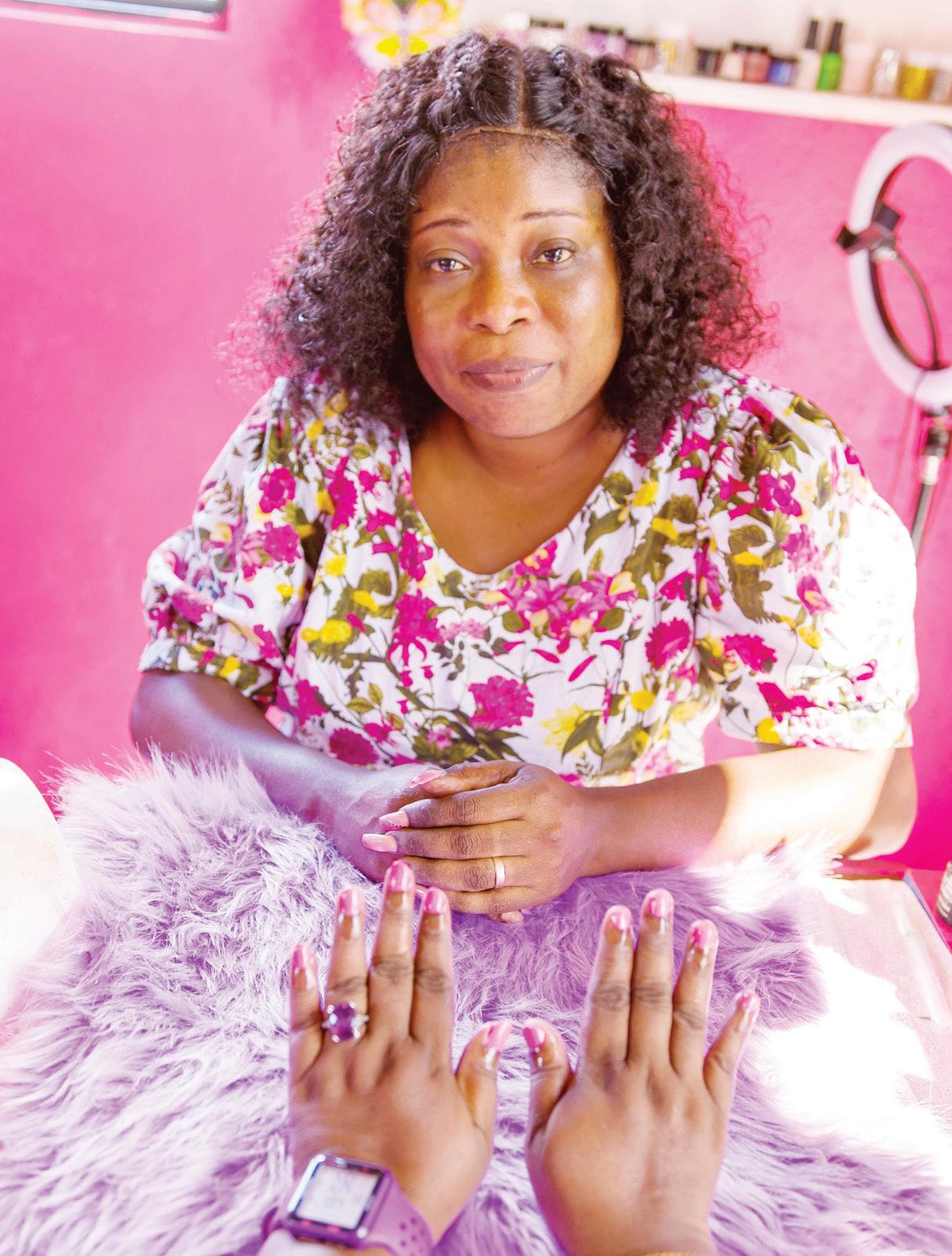
Welcome to the Beauty Shop

Sunday, December 11, 2022
Psychiatrist using ‘Unboxed’ to spread awareness on mental health
Unboxed, which was launched in March 2022, has been on major social media platforms but recently, Light 104. 1 FM radio has been airing the episodes as well.
awareness being created to help persons so that that stigma can be broken.
said.
THE REWARDS
LOCAL mental health expert, Indhira Harry, has created “Unboxed” – a social media show on mental health – to create awareness and educate the populace on the illness to remove the stigma attached to it.


Harry has over 10 years of experience as a mental health expert and has worked at the Georgetown Public Hospital Corporation (GPHC) for five of those years before branching off into private practice to do Psychiatry and Therapy for patients.
Unboxed came about after she realised that there was a lot of stigma attached to mental health and that there are not enough education and
“I thought it would be great where there would be a platform for persons to learn about different mental health areas,” she shared in an interview with Pepperpot Magazine. Persons are, therefore, able to contact her through this medium and book sessions for therapy.
Harry is able to do a full evaluation when that individual visits her office to discuss the issues affecting them. “With Unboxed, I am trying to let people understand that it’s ok to get help; there should be no shame in that,” Harry

Harry studied medicine in Cuba and had initially liked Orthopaedics, but when she did Psychiatry, things changed for her. In Cuba, there are hospitals for each of their major specialities and Harry was especially impressed at how Psychiatry had an entire complex just for their patients.

“It was very organised. I really liked it. I realised that this was the one field that you are there with the patient from beginning to end; you’re on the journey with them.
That person comes to you and you get to see them from a low point to a functional level where they’re
She’s been using her office to advocate kindness for people with mental health issues. “I’ve said we
the best version of themselves, and I think that that’s very rewarding,” she expressed.
And she’s been able to see this firsthand in many of her experiences with patients. For example, once she had a patient who went to her after hearing voices and seeing things. This patient was also using substances and their employer had to let them go.
“Family brought
need to be kind to people and respect whether or not they have a mental health issue. You really don’t know what it’s like until you’re going through it and you shouldn’t judge persons. When we’re listening to persons, we shouldn’t be judging them based on what we would be doing; everyone is different,” she advised.
Furthermore, she said there’s no one fix for
them in because they were unwell and we had to get them on treatment. When they started to improve, they were cooperative and continued with treatment and was able to get back to work and has been holding down a job, been functioning, has a family,” Harry fondly recalled.
everybody. To really get down to the core of the problem, each person and his/her problem has to be assessed individually.
Harry believes that there are many benefits to come from educating persons on mental health from a young age, even from in school.
II CHRONICLE PEPPERPOT Sunday, December 11, 2022
Dr Harry is able to help persons with mental health issues through her show
Dr Indhira Harry
Unboxed was launched last March and has been available on various social media platforms
Women’s Chamber of Commerce on the move with appointment of new Board of Directors

Engineering; Shamela John - Resysco by SJ; Alista Bishop - AX Investment & Consultants Inc.; Anita Ramprasad – Prestige Management Consultants Inc.; Natasha Waddle - Xpress Business Solutions; and Josephine Tapp - B&J Civil Works. Elliot is very pleased and humbled that she was once again supported for reelection so that she can use her office to benefit dozens of women within the next year through the workshops and programmes that the WCCIG facilitates.
Entrepreneurs in Value Chains and the provision of mentorship and opportunities to women.
The Board of Directors has committed to adopting the vision of WCCIG and pledges to continue working towards creating a business environment that fosters the growth and development of womenowned and led businesses, while building relationships for the improvement of the membership.
THE Women’s Chamber of Commerce and Industry (WCCIG) has announced the appointment of seven members to serve on its Board of Directors for the year 2022-2023. Existing President, Rewena Elliot, has been re-elected and the organisation will also now place special focus on building the capacity of its members.

During the Chamber’s third Annual General Meeting (AGM), held virtually recently, Elliot was re-elected to serve as President.
“We want to focus a bit more on our members and see how we can build them whether it’s through specific workshops or programmes; and how best we can lobby for whatever changes they may want in a specific industry,” Elliot shared in an interview with Pepperpot Magazine, adding, “What we plan to do in training and development is to focus a bit
more on what our members are lacking; finding the specific things that they need.”
The Members of the Board of Directors and the companies they represent are as fol -
lows: Elliot - Falcon Logistics Inc. A Blue Water Shipping Affiliate; Aysha Harrop - XL
In brief remarks at the Annual General Meeting, Elliot highlighted some of the accomplishments during the year 2021-2022. Among those was the launch of the WE3A Initiative geared at Strengthening Women
One of the things on the cards soon is a formalised work plan where the directors will have a meeting to close off the 2021-2022 year. The new work plan was crafted after a careful review of the past year, and members are looking forward to implementing the new plan in
III CHRONICLE PEPPERPOT ― Sunday, December 11, 2022
Government Officials and members of the Diplomatic Community, along with WCCIG officials at the Guyana Women and Girls Summit, March 2022
The new Board of Directors: Alista Bishop, Anita Ramprasad, Shamela John, Rowena Elliot, Natasha Waddle, Josephine Tapp, and Aysha Harrop
TURN TO PAGE XIII
Moulding Her Passion
The creative mind of a Guyanese potter

 By Dillon Goring
By Dillon Goring
“IF you have ever had the opportunity to visualise something, I mean you look at a piece of clay and make it come alive in your hands, it can [be] so much fun,“ so says artist Lisa Thompson who spoke about her love for pottery during an interview with the Pepperpot Magazine .
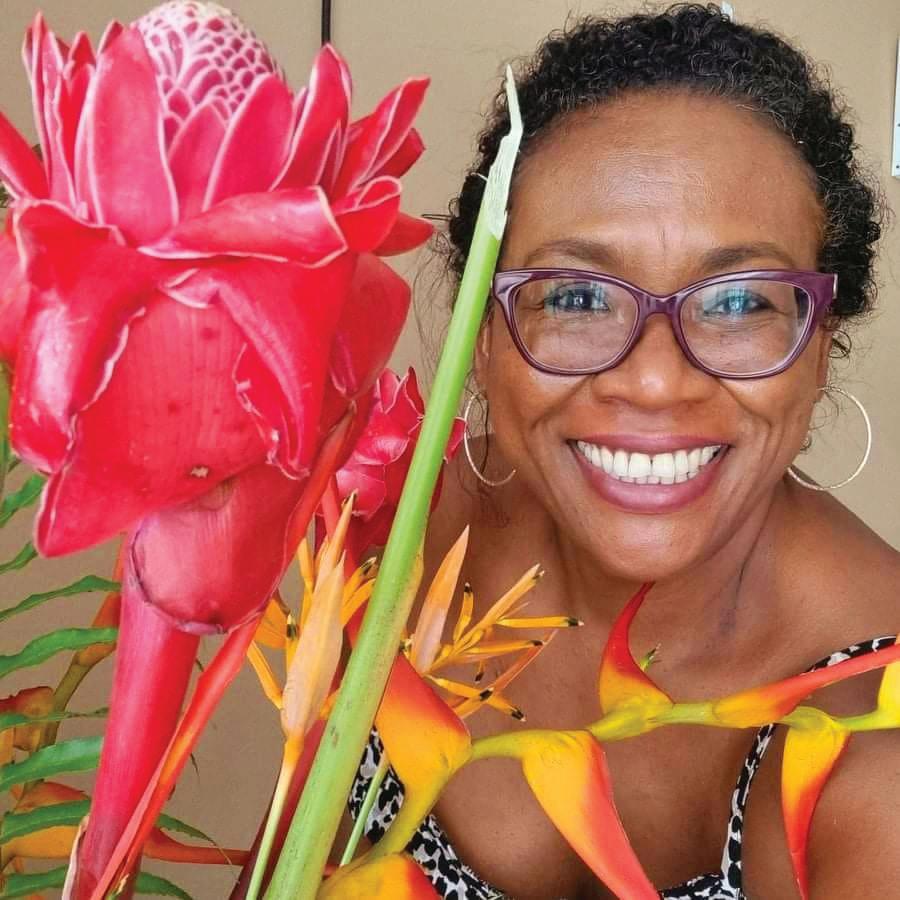
Thompson said that she became more involved with the arts after she was prompted by friends who had seen her works in pottery as a participant in a farmers’ market last year.
During her interview, Thompson said that her friends were flabbergasted
and truly impressive with her quality of work, so they encouraged her to display her work in pottery at an exhibition held on December 9, 2022.
Thompson has a lot of experience in mosaic art and has now moved to dealing with clay.

Why Pottery?
According to Thompson, pottery is fun and it is a joy to make clay come alive. Just using clay to visualise something and go through every step of the process is quite fascinating and exciting for her and she enjoys every step of pottery.
“ For pottery, there are different stages. [You] create something, and it is okay, then you get to glaze it and when you see the finished piece, it is an exciting and rewarding time , once your pieces come out,“ Thompson told Pepperpot Magazine with much exuberance.
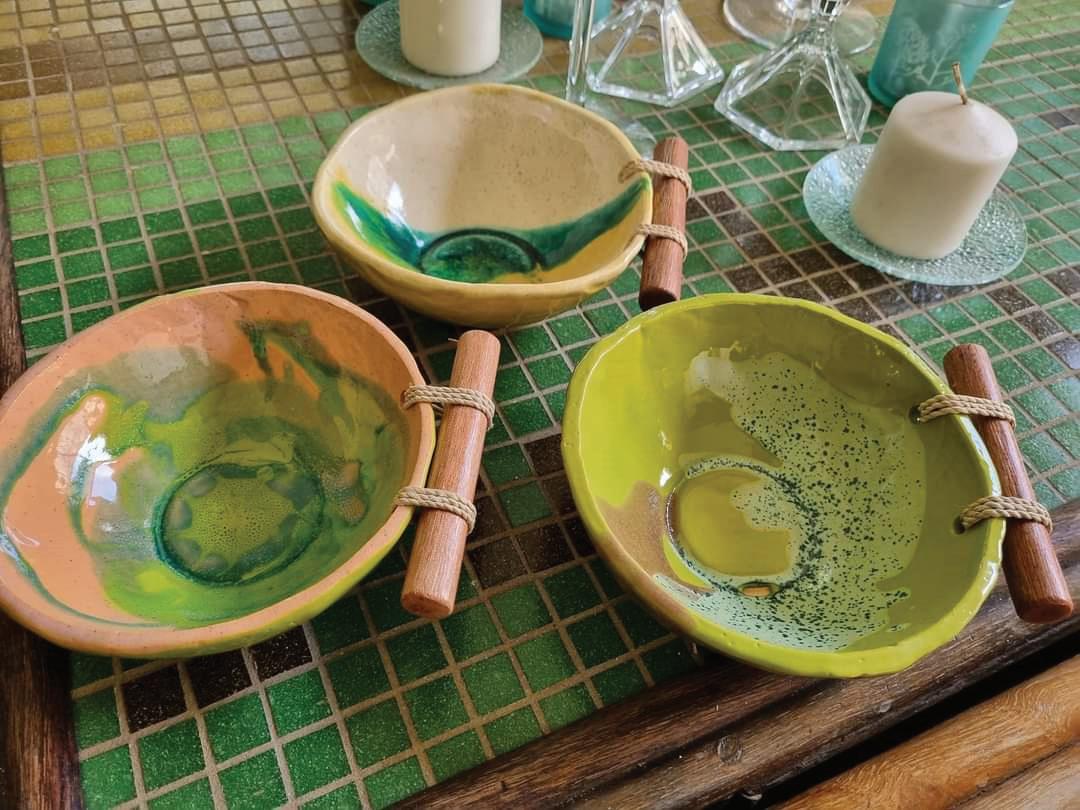
Thompson is about pottery now as her craft,
having come from a background in the arts. She noted that she has every intention of going as far as she can possibly go with this, because of her deep passion for the art form, but more particularly pottery.
She noted that she will
be integrally involved in moulding the minds of young people who are interested in this particular art form.
“There are several other people locally who do pottery. I am happy to teach what I know…I am still learning and I have a lot more to learn, but I am always happy to teach what I know,“ Thompson said.
She is advocating for persons to join the E.R. Burrowes School of Art, when it comes to finetuning their pottery skills or artistic skills in general.
But mostly what is required now in pottery is electrical skills, which would explain why there is a lack of colourful pottery around in the country and on exhibitions that are held across the country.

During her interview, Thompson said that her pottery is distinct and unique from what the
public is accustomed to seeing, because of the work that she puts into her pieces.
Challenges faced
“The first one is perhaps getting the clay. You know, I have managed to collect clay from out of town and then when you get the clay, you have to process it. It is [a] very tedious process to clean the clay and get it ready for usage.
So it is the supply of clay, it is challenging. Then there is the availability of community clay, so to speak, and the availability of material,“ the artistentrepreneur expressed.
She noted that there needs to be the availability of supply materials and classes to teach others who want to learn the craft, but in the meantime, she is quite happy practising her skills and teaching others who are willing to learn.
IV CHRONICLE PEPPERPOT Sunday, December 11, 2022
Thompson’s pieces
Lisa Thompson
Gastronomic Tourism Making Waves in Guyana

 By Trina Williams
By Trina Williams
ALTHOUGH we all have the same urge to eat, our taste in food distinguishes
Guyanese, but also for tourists. For 10 days a year, participating restaurants offer unique menus paired with wines, ideal for attracting new customers while keep-
colourful and modern décor can provide anyone with a peace of mind. Apart from the beautiful art which is displayed for patrons to stare in awe, heliconians comple-
interview with this publication, Restaurant Manager and Head Chef Kennard Thomas highlighted the relationship with GRW and Heliconia and what keeps them striving for greatness.

He affirmed that the team enjoys seeing the elated reactions of the locals and tourists when they taste these cultural dishes. Moreover, he commented that tourists can experience a path filled with fusions of fresh and ethnic spices and take a break from “salt and pepper.”
Eco-Garden Reimagines Farm- To- Table Experience
her talents with the world, she made all of her supporters proud.
Dionne began sharing her culinary talents with her fellow Guyanese in 2016 from her own home. As her clientele grew, her supportive patrons encouraged her to expand Eco-Garden. Hence, the restaurant’s remote location on Mandela Avenue.
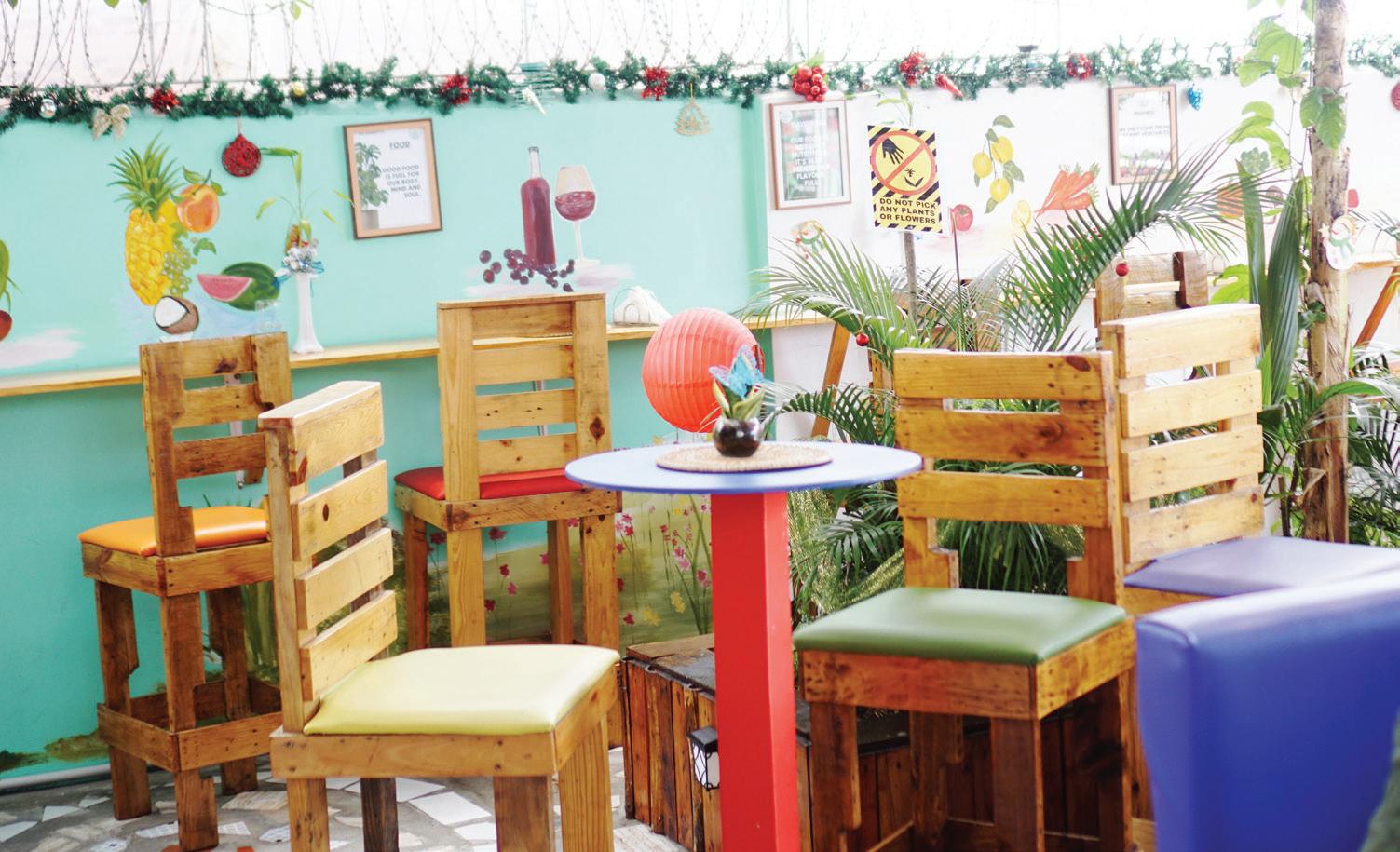
the local farmers’ capabilities, hence, the inclusion of Guyanese fruits and vegetables in every dish.
One of the most challenging aspects of running any business, especially for small-scale farmers, is engaging customers. Even seasoned marketers struggle to overcome these obstacles. Additionally, marketing is not cheap. To be successful,
each of us. The contrast between tourists who eat only while travelling and those whose choice of destinations is determined by the food there, is the driving force behind the development of gastronomic tourism.
Tourism is regarded as Guyana’s third largest export industry. It is an important aspect of communal and sustainable development, an essential component of rural and national development, and a source of livelihoods and opportunities never before possible.
Long gone are the days when fine dining costs “an
ing regulars coming back for much more.
Guyana Restaurant Week (GRW) is an experience to which Guyanese chefs, locals and even tourists look forward. It gives the chefs a platform to showcase their talents and patrons an opportunity to taste various delicacies.
Existing, new and emerging restaurants are all given a chance to showcase their culinary diversity at this time. Two such restaurants that shared their experiences of the recent GRW are the Heliconia Restaurant and Lounge and the Eco-Garden.
Nestled between the cor-
ment the establishment by hugging the walls at every corner, brightly coloured and filled with life.
Lanessa John-Forbes, a patron who was dining during the previous GRW, told this publication, that she frequently visits the establishment. What makes her keep coming back? According to her, it is the savoury food and friendly staff.
She was relishing the dessert she ordered off of their menu for GRW. The mouth-watering brownie, chocolate straws and tropical cheesecake did not disappoint, as she and her guest raved about the fresh and tropical flavours that ex -
The newly opened Eco-Garden is a vegetarian restaurant with a menu to please any palate. The atmosphere consists of a pleasant display of lush greenery and refreshing air, creating a picturesque ambience. Eco-Garden is the perfect ecological escape for those looking to dine while unwinding. With passionfruit vines twirling around the fence to thyme and celery plants being grown in a garden on display, Eco- Garden is none like the others.
Owner of the Eco-Garden International Vegetarian Restaurant and proud
Investing in Local
Apart from the great food, the restaurant prides itself on sourcing its ingredients from a local farm.
“Everything is farm to table,” said Dionne.
a large time and financial investment is necessary. By assisting local farms and encouraging farmers to keep planting, Eco-Garden is doing its part and more.
Dionne added that GRW as-
arm and a leg.” Local attractions such as Guyana Restaurant Week are constantly making fine dining affordable, not only for
ners of Camp and Robb Streets lies a masterpiece for all. Entering Heliconia is an escape from the busy streets of Georgetown, the
ploded in their mouths at every bite.
Gastronomic tourism is on the rise and Heliconia will not be left behind. In an
Guyanese
Graham wishes to share her love of cooking with both locals and visitors. The tragic event of losing her mother led to the creation of the business.
Dionne was obliged to step up and take on the responsibilities of motherhood at a tender age, because she was the oldest of four. She overcame this challenging situation, and by sharing
The COVID-19 pandemic sparked issues with supply and demand, as well as various issues with agricultural marketing for farmers. The biggest issue was farmers’ struggles in getting their produce to local consumers.
“I want to teach consumers that we can grow our own food,” Dionne said. She is aiming to showcase
sisted with brand awareness and they plan to make full use of that advantage.
Dionne even goes a step further and provides the restaurant’s farmers with food trimmings from the kitchen to use as organic fertilizer. As its name suggests, the restaurant promises to lessen the impact of food waste by feeding the soil and composting.
V CHRONICLE PEPPERPOT ― Sunday, December 11, 2022
Dionne
Patrons dining at Heliconia Restaurant and Lounge
A young girl enjoys delicious milkshake at Heliconia
The dining area at Eco-Garden International Vegetarian Restaurant
The team at Eco-Garden International Vegetarian Restaurant: to the far right is the owner, Dionne Graham (Carl Croker photos)
Jonestown, Mahaica
A tranquil farming village
LAST week, the Pepperpot Magazine team visited Mahaica, specifically, the main access road leading to Helena Village, where there are a
of the locals.

series of smaller villages
As such, the team passed through several villages, and one of those communities include Jonestown, Hand-en-Velt, Helena 1 and 2, Good
Intention, Unity and Cane Grove.
Passing through Jonestown, Mahaica the team met 64-year-old Megan Drayton, who resides in a

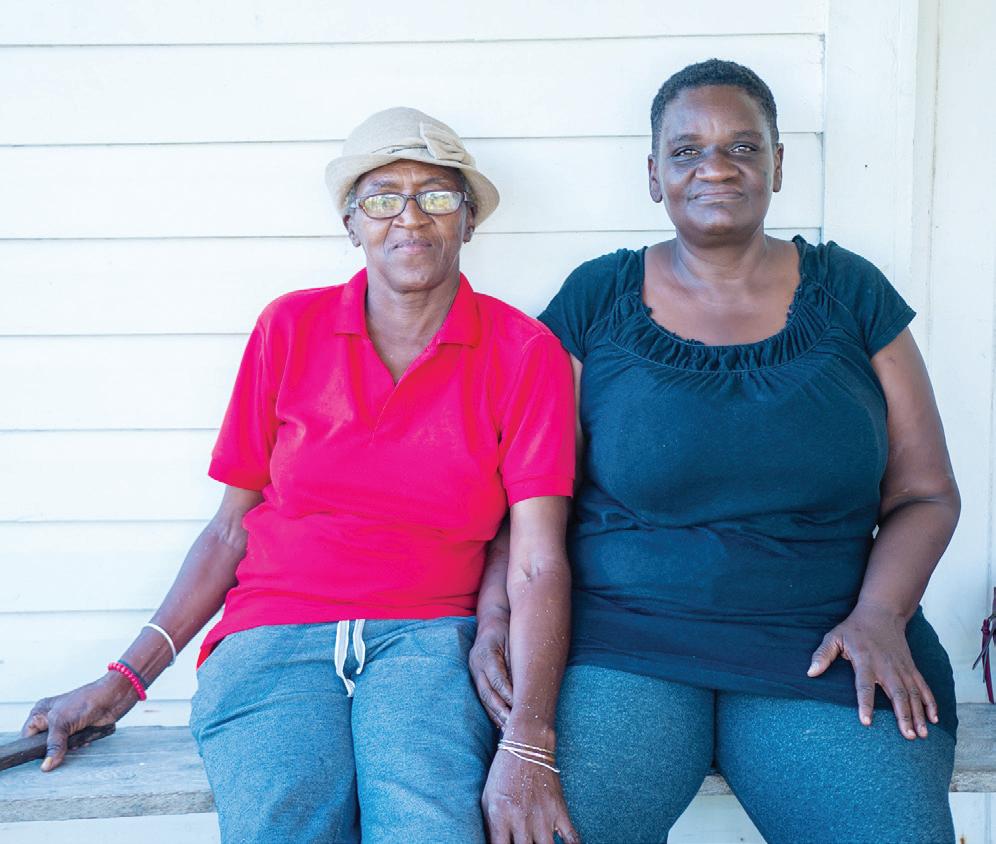
and it was a family business for many years.
She added that the business stopped when everybody split up and today, her daughter and three
that she uses to enhance the environment.
The elder told the Pepperpot Magazine that Jonestown is a safe place to live and the people are very close-knit and they would check up on each other daily.
“One morning, I did not see my neighbour and I went over and knocked on his door to ensure he was okay, and that is how we live around here,” she said.
life in that part of the country, she said, “If nah fight for it you nah survive”.
Her friend, Gwendolyn Fernandes, had stopped by to chat as usual and the pair would engage in friendly banter until they had enough and would engage in household chores for the day.
house on the main access road. At the time, she was speaking with her friend, who had visited her.
Drayton told the Pepperpot Magazine that after the family business of making homemade coconut oil ended, she had to work as a security guard attached to the Mahaica Nursery School.
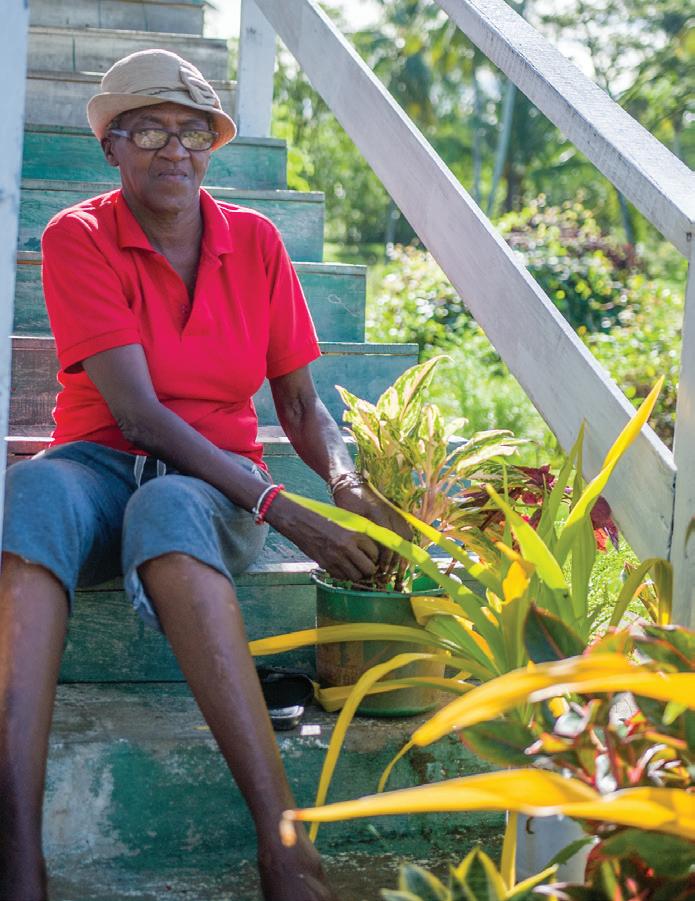
The senior citizen stated that she is on the day shift and did not work for two days because she wanted to give her colleagues some time to make their hours.
Drayton reported that she and five family members used to make coconut oil by the barrels to sell,
grandchildren reside with her in a huge colonial-style house that has been in the family for decades.
The elder related that they used to buy dry coconuts and process it to make coconut oil, a tedious process and after the oil was fully processed, they would bottle it for sale.
Drayton upkeeps the place, and she has some plants and flowers in pots
Drayton disclosed that the access road is populated and some villages are smaller than others, but they have schools, three cemeteries, a well station, shops, supermarkets, a tyre shop, a plant shop and nursery, wash bays, a private school, churches, a masjid, an abandoned community centre with a resource building and the police station at Helena 2.
The nearest market is in central Mahaica and they have some businesses and other facilities.
Drayton stated that most locals are farmers either with cash crops, rice or livestock and their way of life is simple but entails hard work.
When asked to describe
Drayton told the Pepperpot Magazine that they love living in Jonestown, Mahaica and it is a really tranquil place to reside.
She pointed out that they had some accumulation of water due to the heavy rainfall and the water had receded that day and she was cleaning up and had to rearrange her plants.

She has some yard fowls that survived the flood by flying into the trees to take shelter.
Drayton added that Jonestown is a nice place to live and enjoy a quiet country life of hard work and peace.
She reported that Jonestown, Mahaica has all the basic infrastructure along with potable water, electricity, and landline phone and internet service.
VI CHRONICLE PEPPERPOT Sunday, December 11, 2022
from Mosquito Hall to highlight the way of life
Hope, Belmont, Supply, Voorzigtigheid, La Bonne
The able-bodied Megan Drayton fixing her plants (Delano Williams photos)
Megan Drayton and her best friend, Gwendolyn Fernandes
The home of Megan Drayton
The resourceful and talented men of the countryside
By Michel Outridge

KLIM Abrams is a resident of Hand-en-Veldt, Mahaica and he is back home after spending some time overseas and these days he is utilising his skills to make plant pots from both empty

The father of five stated that he had some bottles lying around the place and he didn’t know what to do with them and the idea was conceptualised when he put them together as a plant pot and placed a flower in it.
After he made the first
his wife, Romona Lynch, would do the gardening and source newer plants for their yard.
plastic and glass bottles.
The 59-year-old told the Pepperpot Magazine that home is where the heart is and he wanted to create a relaxation area in his yard to entertain and for his family to unwind, and he spiced up the décor with his very own invention.
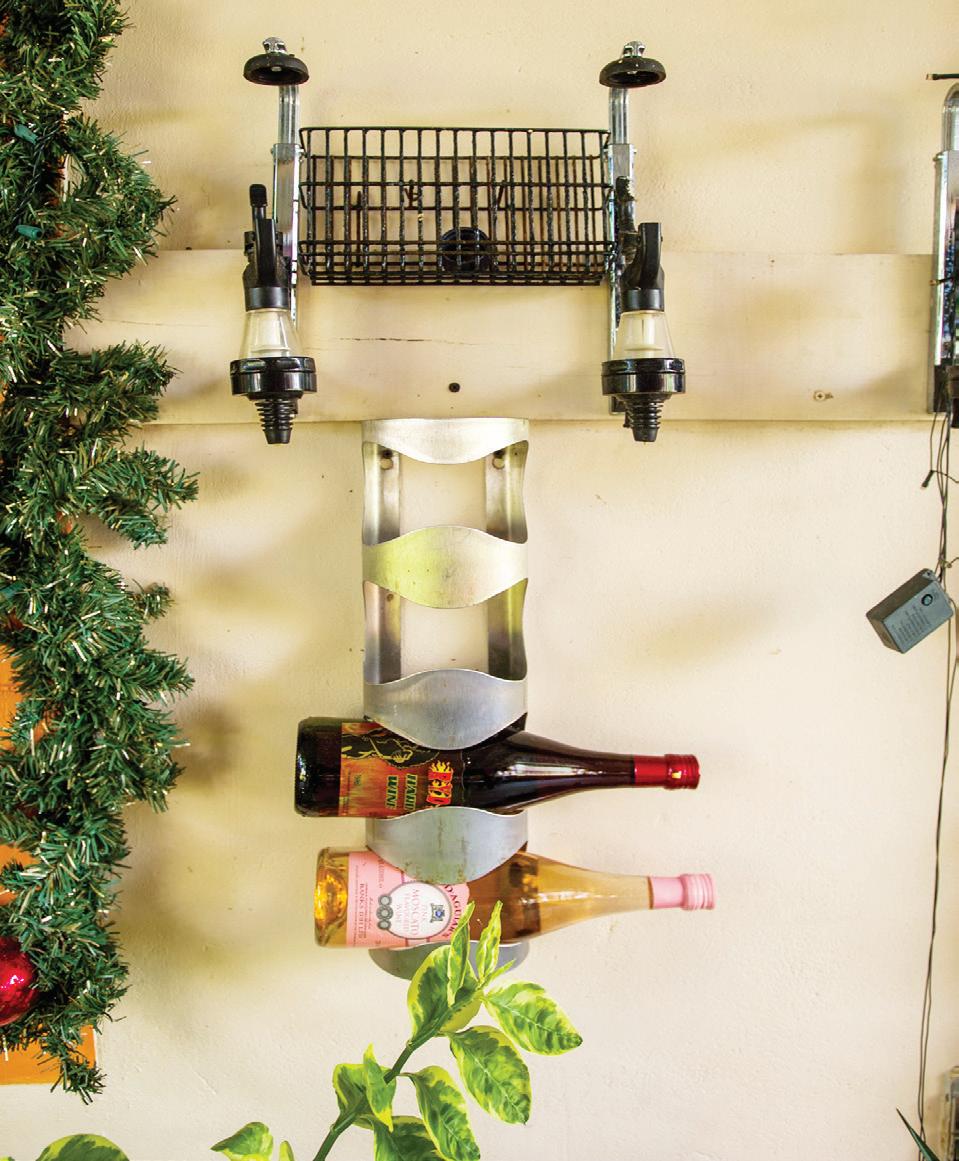
The colour scheme of his neat house is also eyecatching and the place is just a beautiful setting of plants, flowers, a bar and comfortable hand-made furniture with brightly coloured curtains.
one and it came out well, he started to make more to house his many plants, which he placed in his yard as a décor to complement his surroundings.
In the yard, he has a television set mounted on the wall, his music system and it is quite a cosy corner to sit and enjoy a cup of tea or a cold beverage while taking time to appreciate the many plants, trees and flowers that are there.
Abrams has added lights to his unique plant pots and
The retiree told the Pepperpot Magazine that he is home to stay and he is living in his village he was born and raised and it is a quiet place to be.
Troy Jack, the overseasbased Guyanese and the ‘jack of all trades’
The team also met Troy Jack, a full-of-energy person who was not wasting time but doing some technical jobs he had to complete at home.
The 50-year-old is from Jonestown, Mahaica and he has a nice house with plenty of yard space and is a contractor by trade but can fix just about any machine or tool.
He has built several houses in the village and from
the looks of it he is good at construction and had a construction job to execute but was waiting on raw materials to proceed.
When the team met Jack, he was fixing a water pump and a generator and he had all the right tools for the job.
Jack is also a gifted technician who builds and upgrades computers; whenever he is in Guyana, he would use the time wisely to earn.
He is a permanent resident of the United States of America and he would come back home to Guyana when it gets cold in the US.

“I like to work, use my hands to do many things and fixing things are my strong points and life is all about hustle, work so here I am doing what I love to do,” he said.
Jack grew up in a modest home and migrated to have a better standard of life, but Guyana is his home, his country of birth, a native of Jonestown, Mahaica.

He reported that his family resides overseas and he is back home this time around with the intention of setting up a string band. Years ago, the village was known for having one of the best string bands.
Jack wants to revive that and he has imported all the equipment needed and he is mobilising the youths in the
village to start the string band.
“It is my wish to make it happen, to establish a string band in this village, and it will come to pass because everything is in place and I play the guitar and keyboard but band members are needed,” Jack said.
He disclosed that back in the days when string band was the biggest thing in the country, they had a band
named Sid and the Young Souls Senders from Unity Village, Mahaica.
Jack is a very like-minded person who is determined to make his dreams become a reality and having a string band in his community will eventually take place.
VII CHRONICLE PEPPERPOT ― Sunday, December 11, 2022
Klim Abrams with his plant pot invention (Delano Williams photos)
Klim Abrams’ bar in his yard
Troy Jack’s home
Welcome to the Beauty Shop
By Michel Outridge
HAVING worked with employers in the city in the beauty business, Kerry Wilson was more than determined to establish her own small business to escape pay-
building just in front of her house.
The shop is a comfortable setting with a décor of colourful butterflies on the walls with suitable curtains, a fan and adequate chairs, and it is a clean space to have your nails,
ing a commission and the long daily commute.
Today, that dream became a reality for Wilson, who has her own beauty shop named Kerry Styles Bar Beauty, located at Public Road, Voorzigtigheid, Mahaica and it is housed in a lovely pink-painted
hair and makeup done.
The 41-year-old told the Pepperpot Magazine that she opened her beauty shop about three years ago and so far, her clientele has grown, and she is very comfortable working from home, in her own shop and at her own time.
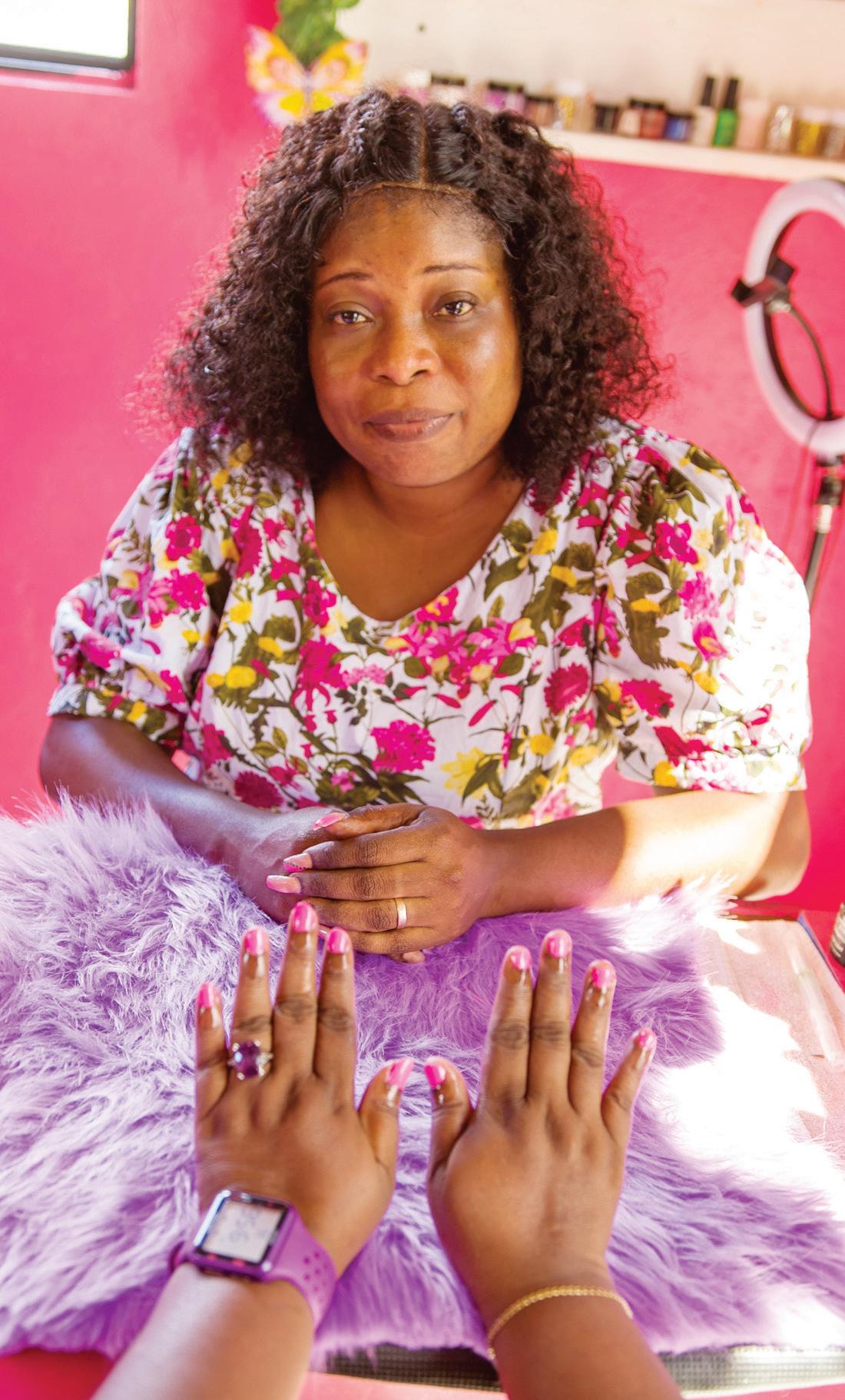
Wilson is friendly and it is the right attitude to keep customers and make a profit by keeping the door of her small business open.
For many years, Wilson worked at a salon and after making the long commute, she would return home emptyhanded because she did not have many clients and also had to pay a commission fee.
“It feels good. In fact, I feel much empowered that I was able to establish my own small business because I wasn’t pleased about working with people and the transportation aspect was too much for me,” she said.
Some of the services offered by Wilson are hair and lash extensions, nails, pedicures, manicures and full face makeup.
The prices are pocketfriendly, being a country area is
most fitting to meet the needs of the people.
Wilson’s shop is open from 09:30 hours to 20:00 hours daily. She would attend to walk-ins, but most of her work is by appointment because timing is a vital part of reducing customers’ waiting time to a minimum.
“Being a beautician is nice, but one must possess patience to be able to work with clients since a lot of people would come with their own designs and would want the exact thing,” she reasoned.
Wilson told the Pepperpot Magazine that her small business continues to grow and by God’s grace she is hoping to make her beauty shop a bit more comfortable by adding more things.
With pink being her favourite colour, Wilson has embraced the fact she must have most things in that particular colour since it is her ‘feel good’ colour.
“This is a quiet, nice place to live and I was born and raised here, so I am used to the slow-paced life and it is very safe to raise a family,” she said.
Wilson pointed out that life in Voorzigtigheid Village, Mahaica is good but entails hard work and a lot of manual labour to have a comfortable life in the farming community that comprises both Indo and Afro-Guyanese.
Karen Lynch, the shop owner
Meanwhile, in Jonestown, Mahaica, there is the home and business place of Karen Lynch, a mother of two, who has a shop, a safe place for the youths in the Village.

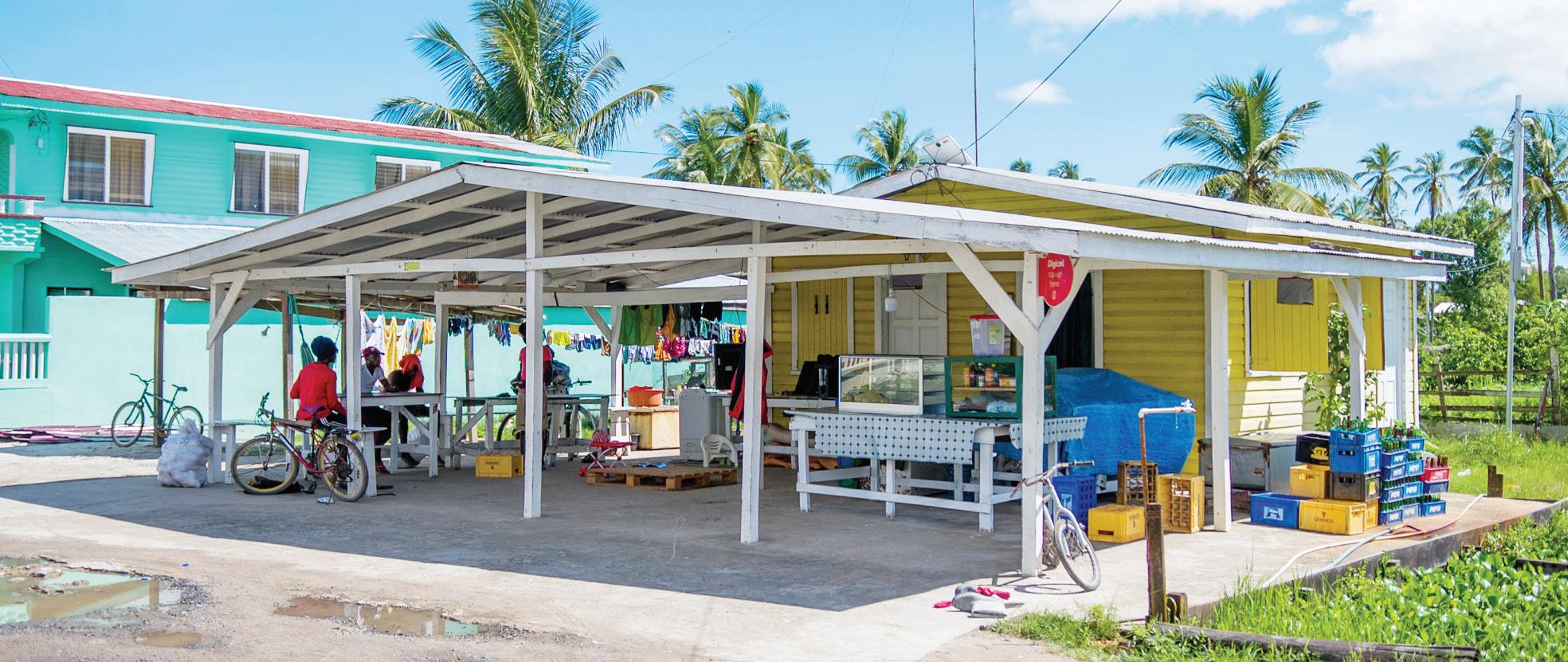

Lynch has created an environment as a ‘chill spot’ for the locals of her Village and she has added a big screen television and a music system so the
young men can watch sports and their favourite shows.
In her small shop, Lynch has in stock fresh pastries, bread and cold beverages.
The 43-year-old told the Pepperpot Magazine that the locals support her business and Jonestown is a good place to
away.
She believes that a resource centre should be put in place for these youths so they can be equipped with life skills to earn by starting their own small businesses.
“A play field is also needed since it is a populated
live because it is safe and the people know each other.
Lynch stated that the unemployment rate in the Village is quite alarming and it is sad to see so many youths wasting
village
a lot of children and youths and a place is needed for them to have some form of recreation and also to engage in sports,” she explained.
VIII CHRONICLE PEPPERPOT Sunday, December 11, 2022
with
Shop owner, Karen Lynch (Delano Williams photos)
Shop of Karen Lynch of Jonestown, Mahaica
Kerry Wilson’s salon
Kerry Wilson and a customer in her beauty shop
The pastor and the plant shop
By Michel Outridge
BEING a Pastor and having a plant shop and a nursery is quite an uphill task, but Reverend Sherril Halley isn’t fazed by the prospect of not having any days off. In fact, she is the friendliest person ever.
Halley is a resident of Voorzigtigheid, Mahaica and the owner of Plants ‘R’ Us Nursery and Plant Shop which is housed in the compound of her residence in the Methodist churchyard.
She told the Pepperpot Magazine that after completing her studies overseas and when she returned to Guyana in 2018, she moved to Voorzigtigheid, Mahaica and her love for plants caused her to establish her own plant shop.

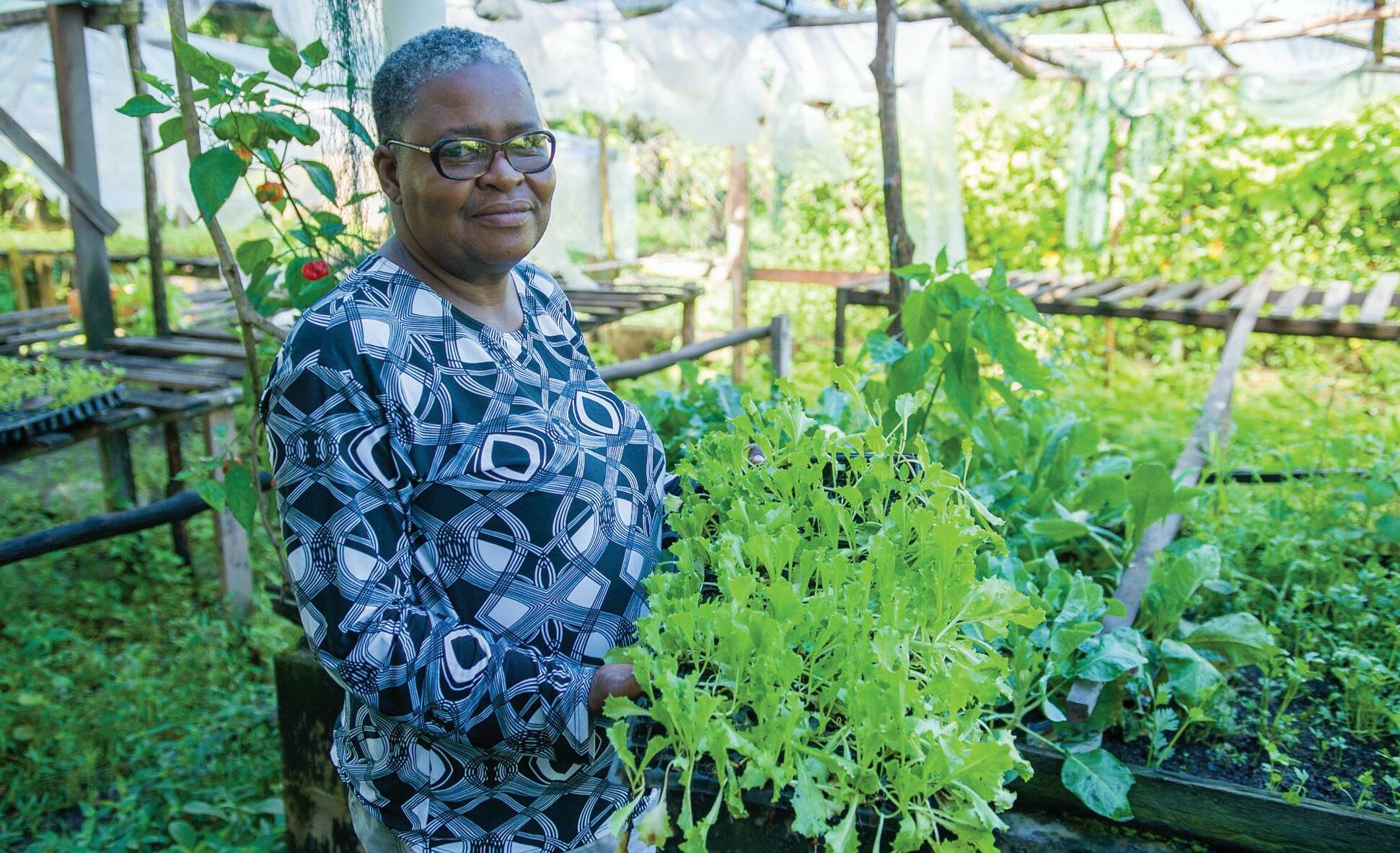
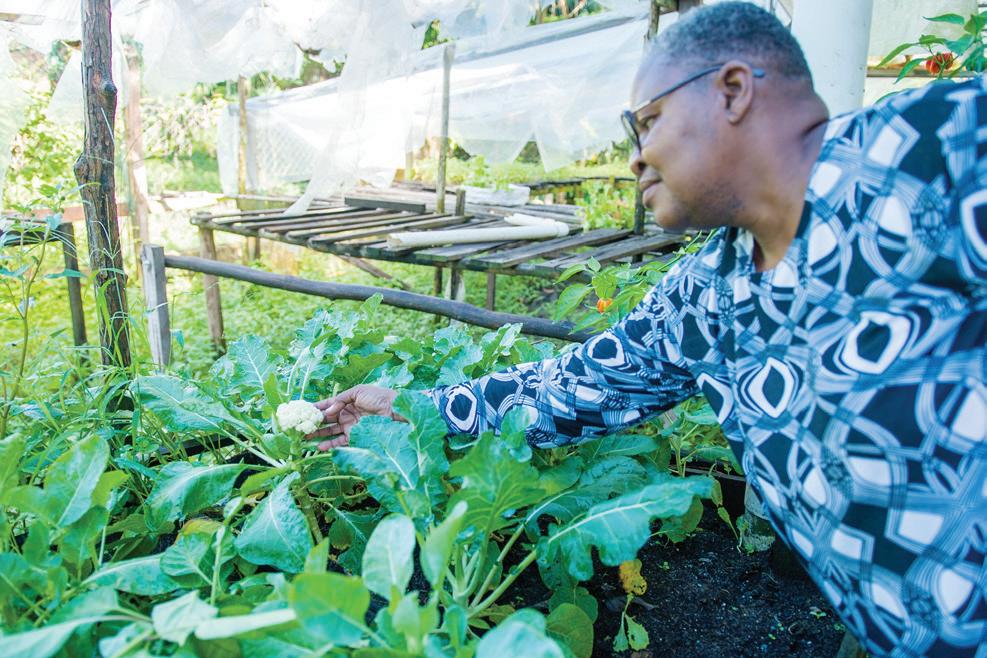
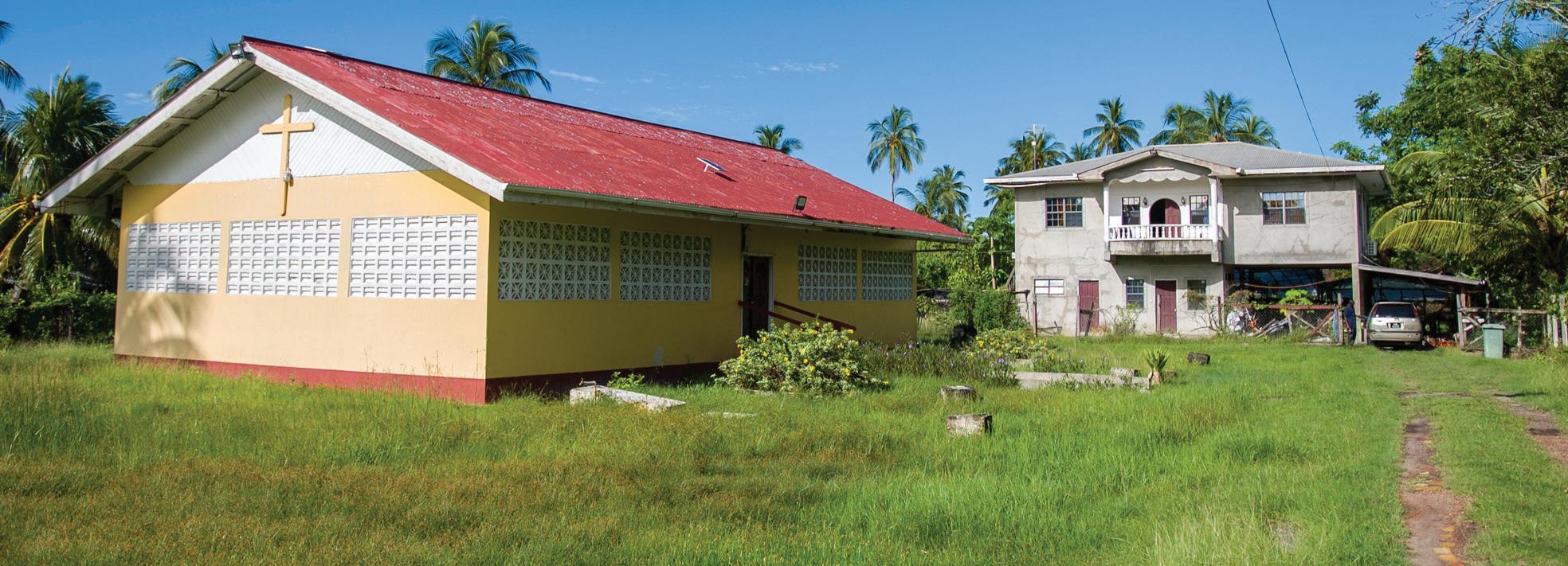
Halley is originally from Perth, Mahaicony, and she is also a qualified agriculturist who started her plant shop in 2022.
Reverend Halley stated that she doesn’t have more plants to extend her plant shop right now because she doesn’t know how
much longer she will be living in the village.
Often she would give away ornamental plants to members of the church as a form of encouragement to take care of the environment and to promote farming.

Some of her plants are also used to decorate the church for worship services.
In addition, reverend Halley also has a kitchen garden with celery, broc-
coli, cauliflower, peppers, tomatoes, boulanger, tomatoes, kale, lettuce and pak choi.
Her uncle, Rayon Bacchus is the gardener and he is the man on the ground taking care of the plant nursery and the garden.
Reverend Halley also has an apiary of bees and
she would make her own homemade honey, most of which she would donate to church members and use in the home.
Speaking about her role in the church, Reverend Halley told the Pepperpot Magazine that she pastors eight churches in the Mahaica circuit which is
divided into two zones with four churches in each zone.
She stated that one thing she finds herself engrossed in is funerals and in one week she had to officiate at three different funerals. This week she will be out for most of the
IX CHRONICLE PEPPERPOT ― Sunday, December 11, 2022
Residence and Church of reverend Sherrill Halley (Delano Williams photos)
Reverend Sherrill Halley poses with some of her produce
TURN TO PAGE XI
The countryside is the ideal place to settle down and raise a family
By Michel Outridge
BEING a versatile gogetter means doing more
than one job and that is no problem for Allison Todd, who works hard doing many things to
earn honestly.
The 43-year-old is a Community Enhancement worker attached to the Mahaica Neighbourhood Democratic Council (NDC) Community Infrastructure Improvement Project (CIIP).


Todd is also a livestock farmer and a small business owner of a boutique and a bar called Ace’s Sip and Chat and Ace’s Collection Boutique at her home in Jonestown, Mahaica.
The mother of five told the Pepperpot Maga-
zine that for the past five years, she has been a CIIP employee, which entails cleaning drains and parapets in the village.
The grandmother of four stated that she also rears pigs, sheep, cows and layer chickens of which she would sell the eggs by the tray.
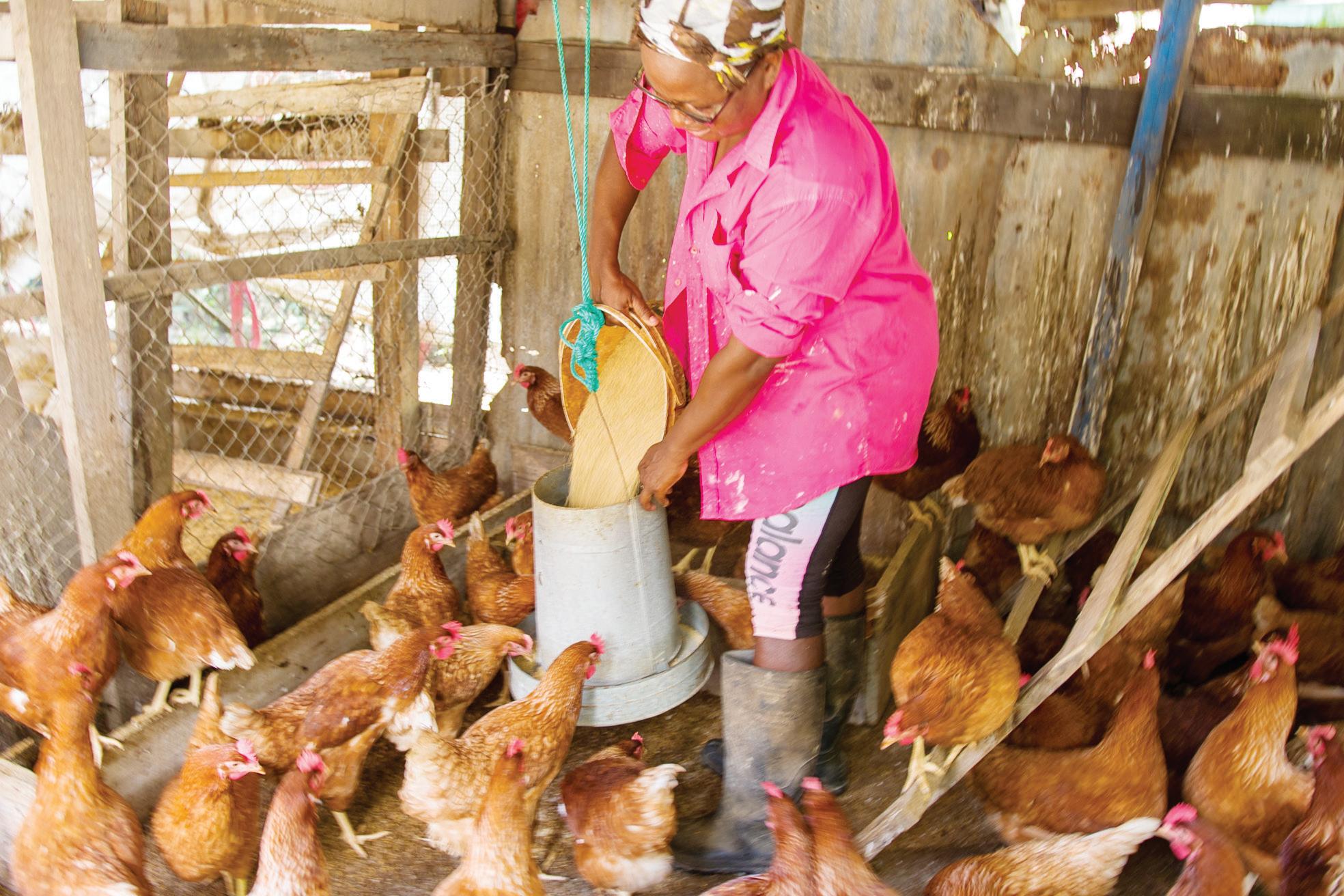
For her boutique, she
would source clothing, footwear, cosmetics, skincare products, and bedding from overseas.


Todd’s bar is a neat and cosy place which is safe, secure and offers cold beverages and delicious cutters in the form of pork, fish, chicken and duck.
She is not an idle person and is always doing
chores and tending to her livestock, working at bar and boutique and also holds down her job with the NDC.
“This place is nice to live in, you have space to plant and rear livestock, but the drainage canals need digging for the rainfall water to flow off the land. I

X CHRONICLE PEPPERPOT Sunday, December 11, 2022
Home and business place of Allison Todd of Jonestown, Mahaica (Delano Williams photos)
The pigs
Feeding time with the chickens
Allison Todd in her boutique TURN
TO PAGE XI
The countryside is the ideal...
do what I can to upkeep the environment and I would clean the drain, but that is not enough to reduce flooding,” she said.
Todd is a quiet person
and a very kind-hearted woman who is welcoming and a dedicated mother and woman who works hard daily to earn.
Patrick Richmond, the shoemaker
The team also met shoemaker and construction worker Patrick Richmond, a resident of Jonestown, Mahaica, who was repairing a pair of slippers at the time.
Whenever work on the construction side of things is slow or non-existent, he would take on shoe-repair jobs to earn.
Richmond told the Pepperpot Magazine that he would stitch, repair and paste any shoe, even slippers, and it is an acquired skill he mastered over time.
“This is my side hustle and I would do it when I don’t have any construction work because I like to make a living,’ he said.
The 50-year-old stated that life is fair in the countryside but there is a need for employment of the young people in that village.
About three years ago,
the mud dam was upgraded to an all-weather road and he is appreciative of that, but it is eroding due to the damage caused by heavyduty vehicles traversing the road as is now.
Petal Gravesande, the stay-at-home mom
The team also encountered another resident of Voorzigtigheid, Mahaica, Petal Gravesande, who was at her cousin’s house to source two dry coconuts to return home to prepare a meal of split peas cook-uprice with salted fish.
The 58-year-old told the Pepperpot Magazine that in the countryside, especially their Village, one can go to any neighbour and get fruits, greens and just about anything because they live in harmony and with much love.

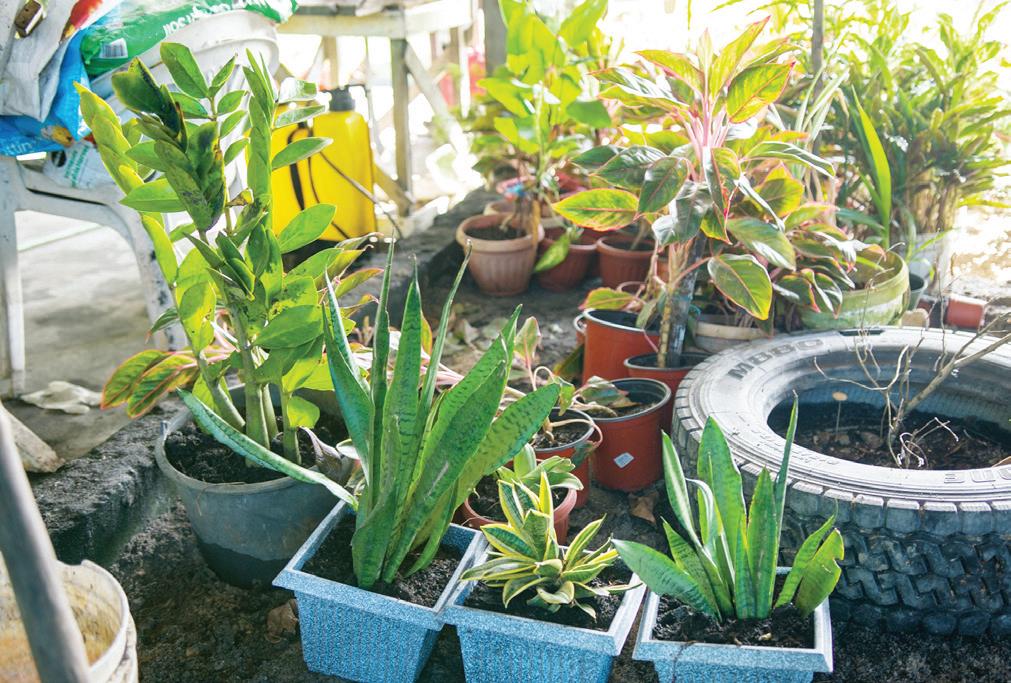
Gravesande related that Voorzigtigheid, Mahaica is a very quiet farming vil-
The pastor and the plant...
she has little time she will quit whatever she is doing and make time for people when needed.
The reverend also acts as a full-time counsellor and has a healthy relationship with the congregation and the community.
The mother of one and grandmother of one told the Pepperpot Magazine that being a reverend is all about devoting time to the congregation and doing God’s work, but it also entails ministering to the community.
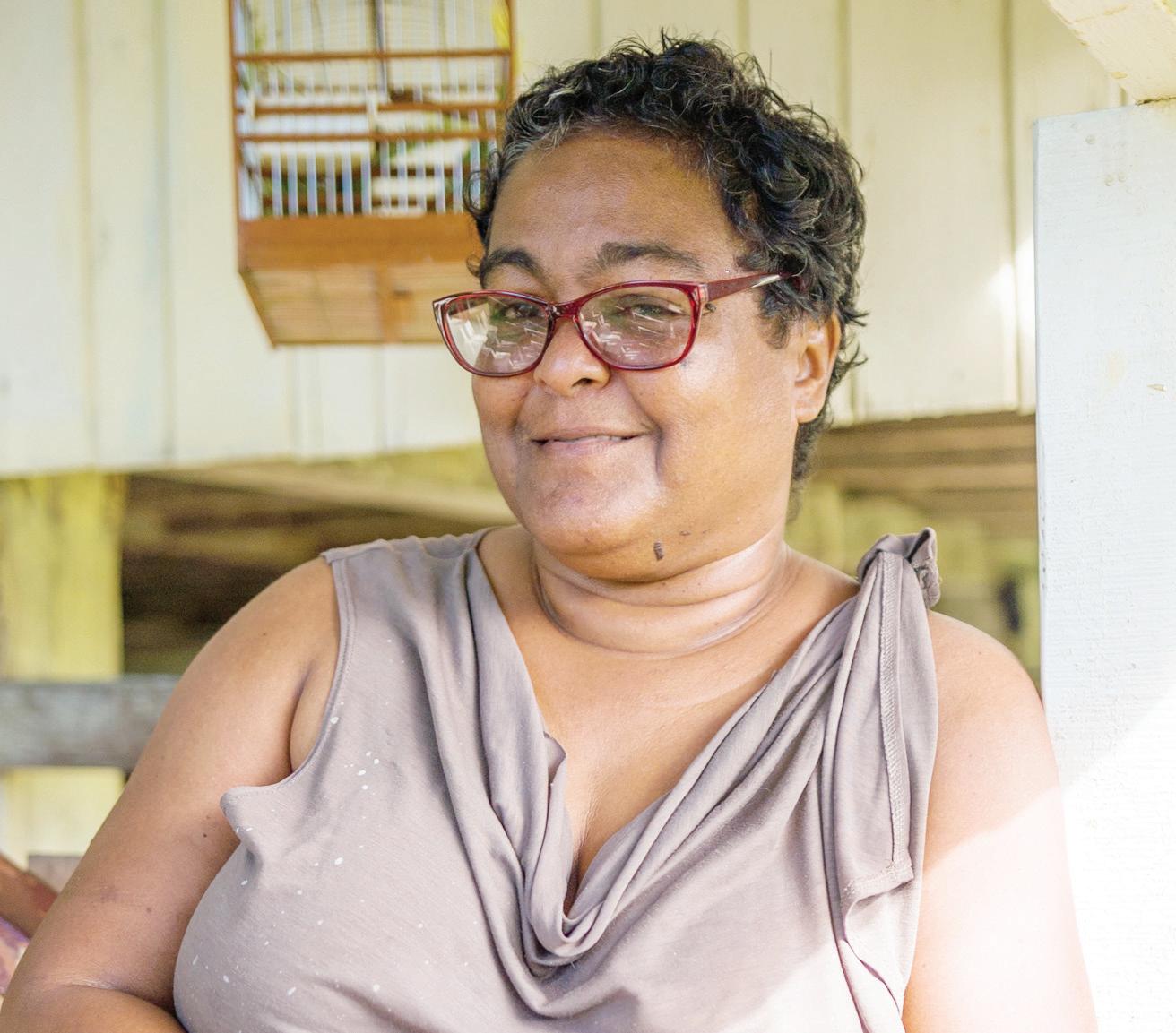
lage where the people would retire early to bed to make an even earlier start to their day in the farms; they have cultivations of cash crops and rice.
She added that she lives right across the street from her cousin and she would stop by when the need arises.
Gravesande reported that most people in that community are blood relatives and it is a good place to live because it is practically crime-free.
She stated that she was
born and raised in the village and it will remain her home because it is ideal for her.
Her first cousin, Jean Gravesande was entertaining her briefly since they are offspring of two brothers and they have always been close-knit.
The mother of two said Voorzigtigheid, Mahaica is a lovely place to settle down and raise a family and enjoy the life of being a farmer or a self-employed individual.
weekdays due to the death of an uncle.


“At funerals, it is the time to be there as a pastor to show support, love and care during grief the people need that extra care,” she said.
Reverend Halley related that she never imagined she would become a Reverend but has been at it for the past five years and it is safe to say it is a true calling she fulfilled.
“It is the satisfaction for me I really like what I do ministering to the people and so far, it has been quite a journey. The joy is
tremendous when people can heal mentally and spiritually and my role is to bring them comfort through the word of God,” she said.
Reverend Halley is also a lover of animals and has four adult dogs and two puppies as pets and she has an open-door policy where any of her neighbours, church members or just about anyone can walk at any time, she is willing to sit and listen.
She said the people of Voorzigtigheid Village, Mahaica are very helpful and kind, and she would interact with them as often as possible even if
XI CHRONICLE PEPPERPOT ― Sunday, December 11, 2022
Some of the plants in the plant shop and nursery FROM PAGE IX
Petal Gravensande
Shoemaker, Patrick Richmond
FROM PAGE X
INTERNATIONAL MOUNTAIN DAY 2022
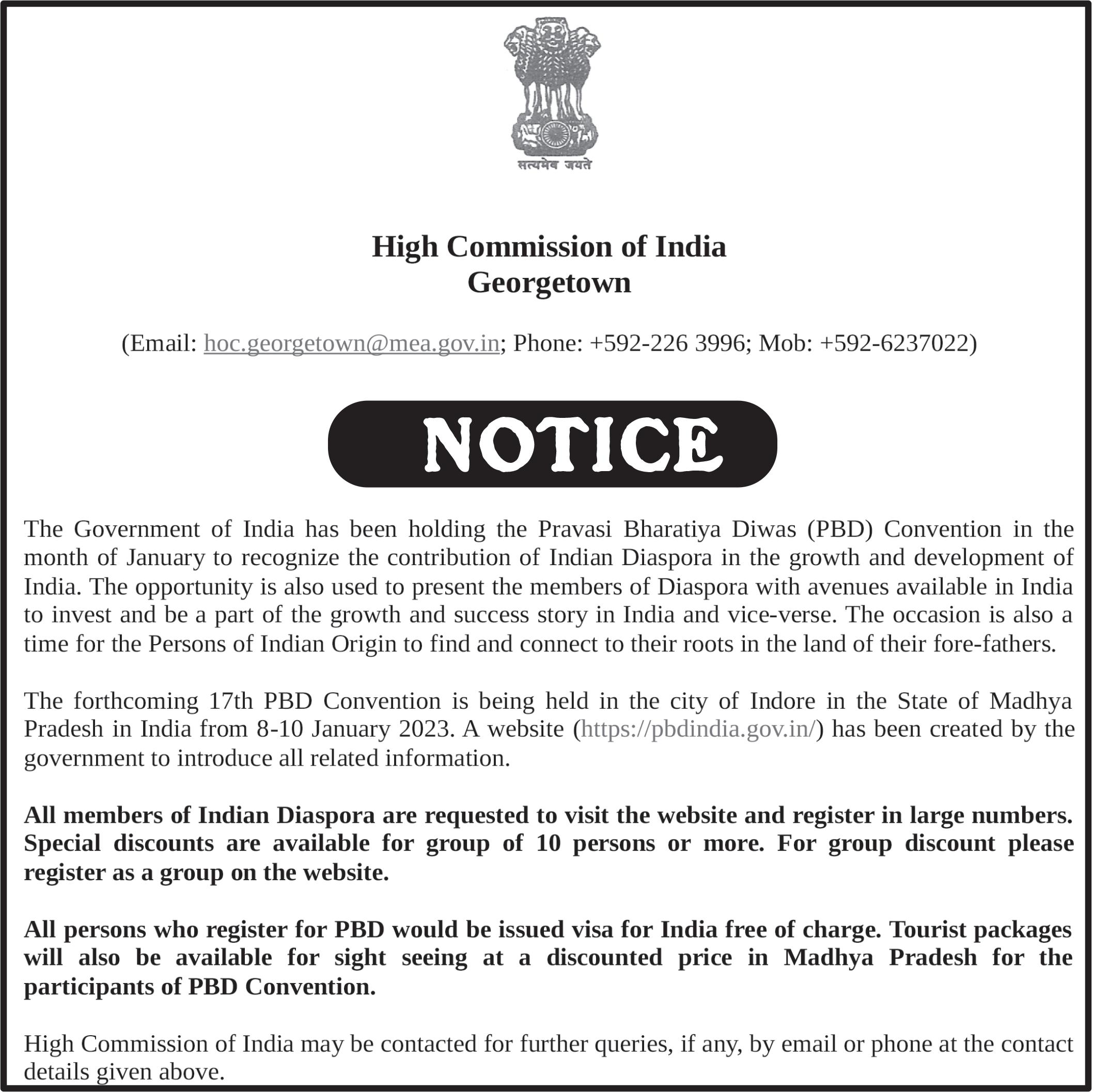
MOUNTAINS are home to 15 percent of the world´s population and host about half of the world’s biodiversity hotspots. They provide fresh water for everyday life
to half of humanity. Their conservation is a key factor for sustainable development and is part of Goal 15 of the SDGs.
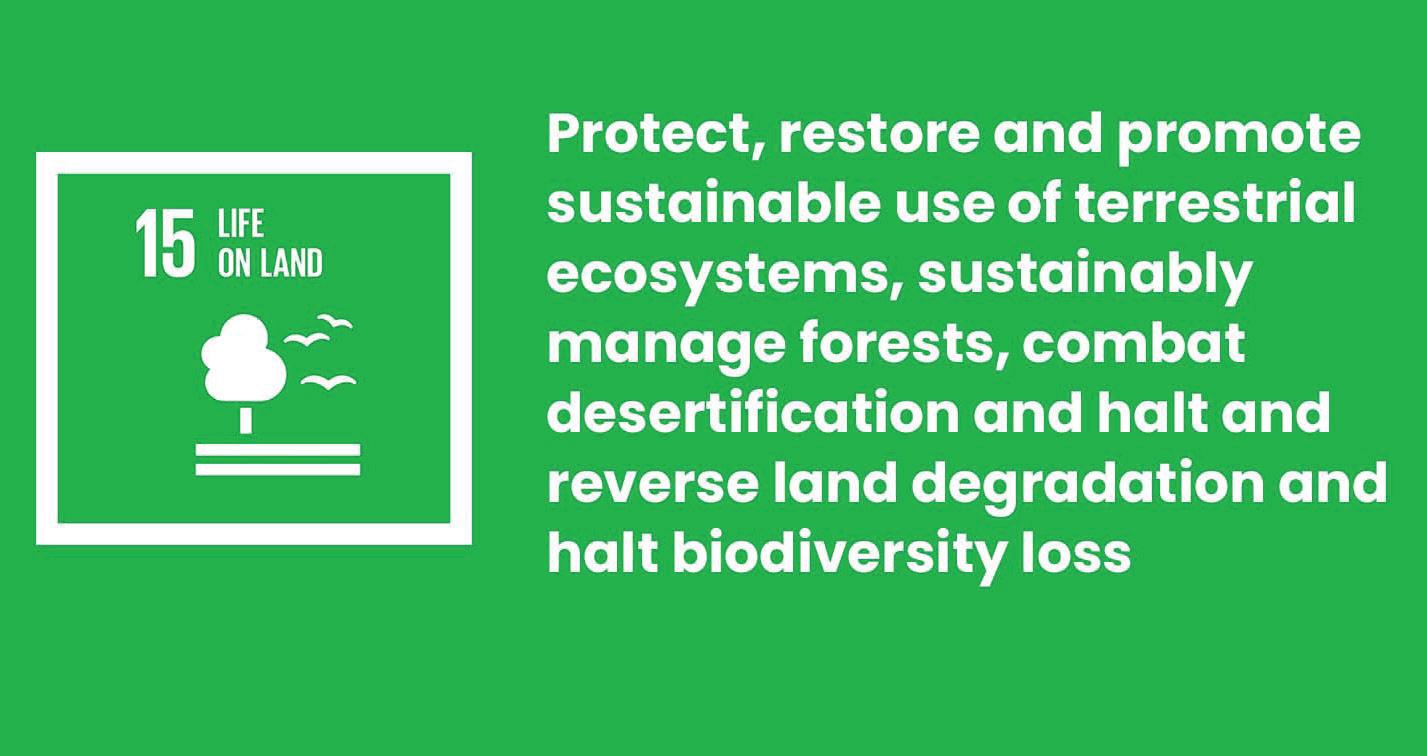
Unfortunately, mountains
are under threat from climate change and overexploitation. As the global climate continues to warm, mountain people — some of the world’s poorest — face even greater
struggles to survive. The rising temperatures also mean that mountain glaciers are melting at unprecedented rates, affecting freshwater supplies downstream for millions of people. This problem affects us all. We must reduce our carbon footprint and take care of these natural treasures. The increasing attention to the importance of mountains led the UN to declare 2002 the UN International Year of Mountains.
International Mountain Day is celebrated annually on 11 December to create awareness about the importance of mountains to life, highlight the opportunities and constraints in mountain development, and build alliances that will bring positive change to mountain peoples and environments worldwide. Women Move Mountains is the theme of this year’s International Mountain Day on 11 December.
Women play a key role in environmental protection and social and economic development in mountain areas. They are often the primary managers of mountain resources, guardians of biodiversity, keepers of traditional knowledge, custodians of local culture and experts in traditional medicine.

Increasing climate variability, coupled with a lack of investment in mountain agriculture and rural development, has often pushed men to migrate elsewhere in search of alternative livelihoods. Women have therefore taken on many tasks formerly done by men, yet mountain women are often invisible, due to a lack of decision-making power and unequal access to resources.


As farmers, market sellers, businesswomen, artisans, entrepreneurs and community leaders, mountain women and girls , in particular in rural areas, have the potential to be major agents of change. When rural women have access to resources, services and opportunities, they become a driving force against hunger, malnutrition and rural poverty and are active in the development of mountain economies.
To trigger real change towards sustainable development, it is important to engage in gender transformative change.
International Mountain Day 2022 is an opportunity to raise awareness about the need to empower mountain women, so they can participate more effectively in decision-making processes and have more control over productive resources. By sharing excellence, opportunities and capacity development in the mountains, the day can promote gender equality and improve social justice, livelihoods and resilience.
Mountains in Guyana
Mountains and their surrounding landscapes are often picturesque and attract many tourists and nature lovers.
Guyana has more than 200 named mountains, with four mountain ranges which are mostly found in the highland region.
Did you know that?
* 57 peaks are found in Cuyuni-Mazaruni
* 45 peaks are found in Potaro-Siparuni
* 52 peaks are found in Upper Takutu-Upper Essequibo
There are four mountain ranges in Guyana:
1. The Acarai Mountains
2. The Imataka Mountains
3. The Pakaraima Moun-
tains and 4. The Kanuku Mountains.
The main mountain range in Guyana is the “Kanuku” Mountains which separate the North and South Rupununi savannahs.
You can share your ideas and questions by sending letters to: “Our Earth, Our Environment”, C/O Communications, Environmental Protection Agency, Ganges Street, Sophia, GEORGETOWN, or email us at: eit. epaguyana@gmail.com. Follow us on Facebook and Instagram and subscribe to our YouTube channel.

XII CHRONICLE PEPPERPOT Sunday, December 11, 2022
Women Chamber of Commerce on the...
FROM PAGE III

the coming year.
For the new year, some of the things discussed include continuing the work with the We3A: Strengthening Women Entrepreneurs in Value Chains project and promoting the initiative a bit more for more Guyanese womenowned businesses to benefit. This project affects six regions and since its launch last August, work has been done in two - Regions Three and Four.
“We have four more regions to go and so that will take a rigorous plan. We will have to do some heavy lifting as it relates to getting to the outskirt regions… logistics in those regions; to get there, find the women to be involved in the programme. We will be working along with our Project Coordinator who will craft a plan that is suitable for us to execute in those regions,” Elliot shared.
The WCCIG president noted that over the past few weeks, the Chamber has been invited to participate in some trade missions (from the US, Canada, etc.) and before these, there were several business meets that the members were exposed to. So the members had an opportunity to connect with worthwhile networking and partnership ventures and expose themselves to events that boost their businesses and showcase their talents.
Further, she said the plan is to strengthen the Chamber’s relationship with government agencies and other entities as they work to benefit dozens of women over the next year. The intention is not to just grow the membership, but to build the members whether it’s through their business or in their personal capacity.



XIII CHRONICLE PEPPERPOT ― Sunday, December 11, 2022
Re-elected President of WCCIG Rowena Elliot
Vice President of WCCIG Aysha Harrop
Treasurer Alista Bishop
We cannot ignore the viral menaces in our midst, to our detriment
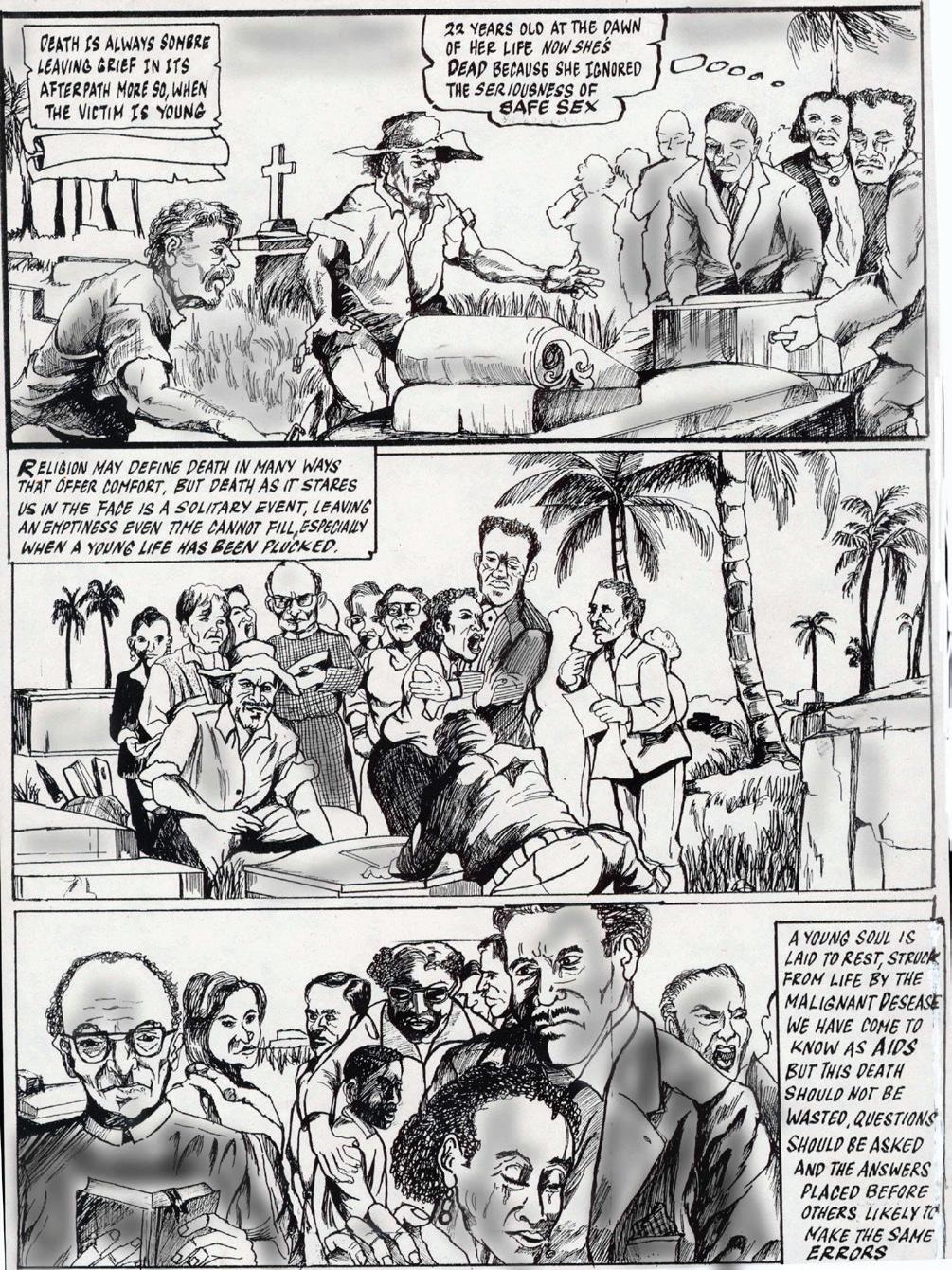

THE political philosopher Niccolo Machiavelli was famously quoted as saying, to facilitate the masses, they require ‘Bread and Circus’, and this has been repeated since.

But that was the 15th Century, though it has some relevance to our times. It is only a chip in the requirements of our global social and economic realities facing nations and peoples of the 21st Century. We have got to learn that types of phenomena and health threats that can be termed ‘pandemic’ even when termed under control, protective measures cannot be wished away. The fact that there are now reported some 430 new cases of HIV-AIDS in Guyana is a catastrophic amount for a small nation as ours. I’ve touched on the fol -
lowing in this column before: “We seem to think that infections go out of style when something new is threatening us.” The Common Cold is still with us; so is Tuberculosis and Cancer, along with all the threats from Nicotine, Alcohol, Marijuana, Cocaine, over-the-counter pills, inactivity and too many gluten-based foods. None of us can swear to have a completely healthy lifestyle, but moderation is a peak that we can reach. Thus, there must be moderation in our physical-sexual engagements. With the latter, there’s an addictive element called ‘chemistry between two people’, a mysterious element that keep them coming together after the first encounter, despite the most dire of warnings. As a young man, I was
XIV CHRONICLE PEPPERPOT Sunday, December 11, 2022
TURN TO PAGE XVIII
Leaders and people in leadership positions are not the same
THROUGHOUT my life, I have been listening to people call themselves a leader. There are many self-proclaimed leaders in our communities today and people who are given leadership titles in many fields. Leadership is an important topic for me as it relates to young people and change. It’s one of those topics that gets my “brain juices” flowing, as I am quite passionate about it. I, like many, do call myself a leader as well. I am a youth leader as I am and was the head/ leader/mentor for many youth and social groups.
So yes, I am probably one of the “self-proclaimed” leaders because who exactly gets to dictate who is a leader and who isn’t?
There are leadership positions all around our communities as there is a need for a leader in almost every aspect of human life. Our communities are filled with religious leaders, business leaders, elected officials, educators, and many others. They play an integral role in the development and progress of our society. However, a title alone doesn’t only make you a true leader. Leaders and people in leader-
ship positions are not the same things. Anyone can be given a position to lead, for whatever reason, but that doesn’t make them an actual leader. You need the right set of skills, characteristics, charisma, patience & kindness, determination & will. Otherwise, it’s just you and a fancy title with no real positive influence over people and their lives. While many leadership positions come with hefty responsibilities, they also come with a lot of power. That very power, when wielded properly, can be of so much value and potential to the lives of people
in need.
It’s a shame to see so many people in leadership positions abuse that very power for their selfabsorbing interests and not in the interests of the people they ought to serve. It’s also quite distasteful and irresponsible not to make the best of every opportunity granted to you to make the lives of others a bit better. For me, your actions are what prove you to be a leader—not your title. Titles are merely for formalities. I’m a practical being, and your ability to positively influence others to do and be better makes you de-
serving of your leadership position. How you allow your team to stay motivated and respectful of you, even in the most stressful and challenging situations is what makes you a leader. “Leaders” ought to respect the office or role they’re given enough to carry out the responsibilities with divinity and integrity. Otherwise, what kind of example or principles are you teaching the people you ought to lead on the right path? You’ll teach them to accomplish a specific goal but at what cost? — To what extent?
Leadership roles and


responsibilities are not to be taken lightly; if you’re unable to meet the demands of what it takes to be a positive leader, I’d advise you to not take up such a task, to begin with. At the end of the day respect from me comes from how you treat people. A little bit of kindness and compassion will always go a long way in this life. Your title means nothing if your ability to lead is compromised by your lack of positive influence and integrity. I’ll always keep that at the back of my mind wherever this life takes me.

XV CHRONICLE PEPPERPOT ― Sunday, December 11, 2022
DISCOVERING YOUR ROAR
LAST week I mentioned Dr Odon as one of the brilliant minds I met on my recent trip to Africa. I mentioned to him in our conversation to contribute to my column, and he did not hesitate to do so. This content is appropriate at this time when we are reflecting and planning for a new year.

DISCOVERING YOUR ROAR
“Is it better to be a small fish in a big pond, a big fish in a small pond, a small fish in a small pond or a big fish in a big pond?? What do you think??
For me, it doesn’t matter as long as you swim, occupy and impact lives with no restrictions!!! The important thing is understanding if you
can swim in the first place and how you feel when you swim. If you feel great and it makes you happy, you better swim like your life depends on it. But actually, I didn’t want to talk about fishes and ponds, even if that is a really cool premise to start the conversation.
Have you ever wondered why you are doing a job you don’t enjoy, but you regard what you love doing as just a hobby? Do you remember why there is tension between what you do for a job and what you enjoy doing? Do you know who you are personally or are supposed to be professionally? Do you want to know how both dimensions can work together nicely?
In the wake of COVID, there has been so many disruptions in the world of work that the need to develop a personal and professional profile that is resilient to societal changes is crucial. Also, it is the responsibility of the Post-COVID Student or Professional to take advantage of these changes for career enhancement and growth.



I always tell people that there is an opportunity to plan for their career early and for those who have lost their career track, there is also an opportunity to get back on the path. In fact, everything you have done until now has the potential to be important as a resource for your journey to career success. This can be connections made, knowledge gathered and even skills acquired. I started with fishes and ponds but
looking at the title of this write-up, which is discovering your roar, there seems to be a disconnect because fishes don’t roar. Well, the last time I checked they don’t. So, let us get back in line, shall we? Since I studied zoology, even though I never did anything with it, I love animal references, as many of the people who listen to me know. So let me paint you a career picture using an animal you surely know well: the lion.
When I say lion, what words come to mind? Did you think ‘bold’ or ‘fierce’ or ‘roar’? I am sure you have other words or phrases to describe a lion. Now I will let you in on something you have probably not considered! Did you know a male lion sleeps and snoozes for about 20 hours a day, while a fe-
XVI CHRONICLE PEPPERPOT Sunday, December 11, 2022
TURN TO PAGE XXVI
How to avoid relapse
I RECEIVED many requests to discuss alcohol abuse and how to avoid relapse during the holidays.
I commonly receive these requests during the holiday season as we can easily succumb to temptation or even spiral out of control.
Many individuals who have identified a personal pattern of alcohol and drug
abuse behaviour choose to remain completely drugfree/ abstinent. This is very difficult to maintain on a regular day, let alone during the holiday season.
If you are in this position, you are definitely not alone and I’m going to share some tips on how you can remain sober and keep your feelings of self-worth intact

(as this is typically lost during a relapse).
There are many reasons why a relapse may occur, but there are many possible universal triggers. The most common cause of relapse is withdrawal, which is the physical or mental detox of the drug; a process that can last a few days, weeks, or months. This means, if you
are new to sobriety, there is a higher chance of a relapse. However, it does not have to be that way, so please do not become discouraged. One is also more likely to relapse if they do not develop new and healthy coping skills, practise good self-care or consistently work on their relationships.
Completely detoxing
from alcohol can be the easy part with the harder one being living a life without alcohol, especially if it was a part of your daily life.
The best and most successful form of treatment for alcohol abuse covers a variety of options, such as medication, personal counselling, and support groups.
If you are even one day
off of alcohol, you are taking a huge step forward. For now, these are the steps and little tips that can help you to remain abstinent.
First and most important, be consistent with your treatment. If you are taking medication, continue to; if you are going to counselling, continue to go. If
How syphilis appears in the mouth
SINCE the advent of HIV, there has been a global tendency to deemphasize the previous role of syphilis in the gamut of chronic diseases. Guyana is no exception. However, in recent times the relevance of this condition has reasserted itself so much that the government has been giving its prevalence a degree of priority.
Syphilis is a venereal disease (sexually transmitted) caused by a spiral-shaped germ that can move about like a tadpole. Someone can either acquire the disease or be born with it. The untreated acquired form has three easily recognizable stages:
1. The primary lesion called the chancre ‘sore’ is
usually solitary.
2. The secondary lesions are numerous reddish patches or modules.
3. The tertiary lesion called gumma (similar to chancre) is found in the mouth
On some occasions, patients attend the dental clinic with signs and symptoms depicting the oral phenomenon of an STD (sexually transmitted disease). While gonorrhoea of the throat is sometimes encountered, syphilis is seen more often. It is well established that HIV infection is linked to syphilis and tuberculosis. Our experience shows that at no time did any of these patients have prior knowledge of the actual cause of their condition.
Ten percent of syphilitic patients manifest ulcers on the lining of the mouth. These correspond to the site of inoculation where there is a defect in the surface continuity of the skin or mucosa lining. The germs are transferred by direct contact with the primary or secondary lesions of an infected individual. The chancres develop about three weeks after inoculation and persist for three weeks or two months.
Syphilis increases the risk of both transmitting and getting infected with HIV by up to five times. Having HIV at the same time can change the symptoms and course of syphilis. In addition, syphilis is an important predictor for
becoming HIV infected because it is a marker for behaviours associated with HIV transmission.
While chancres on the genitals are characteristically painless, oral lesions become painful soon after they ulcerate because of the contamination by the oral fluids and naturally occurring bacteria. Also, certain areas of the person’s neck usually become tender and painful to touch.
The primary lesions occur most often on the lips, the tip of the tongue, the tonsillar region, and the gum. They start as small red boils, which get bigger and eventually ulcerate. The fluid coming from these nodules is extremely infectious and

at this point, the disease can easily be transmitted to another person through the so-called French kiss.
Mature chancres measure from 0.5 to 2 centimetres in diameter and have narrow, coppercoloured, slightly raised borders with a reddishbrown base (centre). The lesions are ulcerated over nearly their entire surface with a shiny base, usually clear of rotted material and debris. Chancres occurring on the border of the lips are usually crusted. When it is initiated during the primary stage of the disease, penicillin injections over a period of seven days will successfully eliminate syphilis in the vast majority of cases.
The multiple sec -
ondary lesions of syphilis appear five to six weeks after the disappearance of the chancres and undergo spontaneous remission within a few weeks, but recurrences may be manifested periodically for months or even years. Sometimes the disease involves the brain, causing madness and death. Children who were born with syphilis develop teeth with jagged edges and have some pointed shapes.
Although various lesions may occur in different parts of the body during the tertiary stage of untreated syphilis, gumma develops in half of such cases. They are the most common syphilitic lesions seen in the oral cavity.
XVII CHRONICLE PEPPERPOT ― Sunday, December 11, 2022
PAGE XXIV
TURN TO
PAGE
tutored in this, which is also called, in the context of STDs, ‘Fatal Attraction’. And the fact that in this area, the burden of a perceived terminal infection can also morph a carrier into a cold impersonal predator of ‘Death’.

The latter I have met. In the mid-90s, I had created a graphic novel on HIV/ADS, and presented it to UNICEF, and they agreed to publish it. The book was named, “Fading Footsteps: Arnold’s Journey: A graphic tale of AIDS”. It was published in 1998 by UNICEF to be distributed free by the Ministry of Education, which, it seems, the Ministry never did. Because some four years later, a friend, David Yaw, on a business visit to the Ministry, took a wrong turn, entered a room, and the books were piled up there. He picked up a couple, remembered my mentioning it, and brought two for me. In preparing the book, I did some interviews with persons that I was directed to illegally by a friend in the field.
One young lady had a habit of picking up men through the Astor Cinema for a rendezvous at a then ‘short-time’ hotel on North Road, close to Wellington Street. I started a conversation with her, and her response was, “I get this from a man who knew that he was sick; I gon’ give it to as much men that I could.” This kind of situation, at the time a certain death sentence, could have tripped a person off onto a persona of sober insanity. There was a male version of this young lady; same philosophy, called the ‘Ice Man’, whom I contacted, but he wouldn’t allow an interview.
Today, it’s much more frightening. I don’t believe that sex workers coming from over the border are subject to strict
STD tests. It’s too many of them from too many locations, and I know of no policy to intercept them locally. I would hope that there’s a procedure to vet local sex workers. In this crucial domino effect, a lot of people are in danger. For example, who visits the drug yards? Across townships, villages or hinterland areas to verify health treats? So, it boils down mainly to personal discipline on social habits, but does the oldschool semi-promiscuous or current generation, or the semi-literate remember the details about any STD prevention culture from a decade ago? With the pervading prevalence of mind-altering drugs, can the individual summon, aided by memory alone, the warnings of a decade ago on the precepts concerning STDs in his conduct in 2022/23, living day-to-day, wrestling with life, and holding to stubborn deceptive self-assurances. The individual requires a constant reminder, at his/her level of communication and observation that echoes the same agenda repackaged to suit the current terrain. Believe it or not, some people think that Syphilis is a thing of the past. There is confusion between the constant of nature and human ‘tech’ and its futuristic advertising. There’s no question about what the impact of the ‘COVID’ experience [survivor] would have on that survivor, much less a lifechanging diagnosis of an HIV status person.
The bottom line is a continuous programme is necessary, and should be composed of smart marketing to help save the dependents, mainly from the forgetfulness of those that will inflict crucial change not only to their immediate economics but to their quality of life.
XVIII CHRONICLE PEPPERPOT Sunday, December 11, 2022
FROM
XIV We cannot...
CHRISTMAS BACK THEN
WHEN I was a little girl growing up in a sugar estate community and going to my first Christmas party at my private school at the backstreet, I felt happy and excited wearing a new little white dress
seem so merry.

Houses were cleaned, new curtains put on, yards spruced and though there was no electricity for spectacular fairy lights, no Christmas trees and splendid decorations, there was that glow of

with printed red apples, a pretty little pink beaded basket and my long hair flowing down my back in a mass of curls. My mother looked at me with pride as I walked down the street, for though we did not wear crowns, we were as little girls, our mothers’ princesses.

The traditional festive season filled the air with a warm, inviting scent and made everything
cleanliness that was refreshing to the mind. Mothers went on regular shopping trips to the town of New Amsterdam and we got little toys to play with as the season approached, while the special gifts were hidden until Christmas morning.
As children, one of the things we looked forward eagerly to was the mixing of the cakes. My mother had two white enamel buckets that she
XIX CHRONICLE PEPPERPOT ― Sunday, December 11, 2022
TURN TO PAGE XXV


XX CHRONICLE PEPPERPOT Sunday, December 11, 2022

XXI CHRONICLE PEPPERPOT ― Sunday, December 11, 2022




XXII CHRONICLE PEPPERPOT Sunday, December 11, 2022
GUYANA MOVES INTO UNITY AND RAPID DEVELOPMENT AS CLOUDS OF RACISM DISSIPATE
BEFORE the 1950s, talk of racism and race in an adversarial way was unknown in Guyanese society. Though there were six racial groups, each being proportionally a greater part of the total population than at present, they all respected and had close friendships and familial relations with each other. They enjoyed and celebrated the diversity of their society; whenever they met in a foreign country, they became even closer and familial. There was a robust BritishGuianese patriotism.
In the 1950s, European imperial countries, exhausted and impoverished by World War II, could not retain their overseas Empires and decided to withdraw from them. In the 1950s, Britain decided to withdraw from its Caribbean territories and to hand over power to politicians of each territory. It did so by gradual constitutional changes, which allowed for the local politicians to acquire experience in government, form political parties, and compete with each other for election to the local Assemblies or Parliaments. In Guyana, instead of seeking election by seriously offering to the electorate competing for social and economic programs, the local politicians found it easier to mobilise political support by appeals to racial affinities.

But once introduced into Guyanese politics, race never departed and even spread its tentacles to other aspects of Guyanese life. By the end of the 1950s, the Cold War was raging between the West, led by the USA, which championed capitalism, and the USSR which promoted communism. Britain was intent on granting Guyana its Independence but the most prominent politician in the country was a communist and he very likely would have become Prime Minister of the newly independent state. This had to be forestalled. The clash in the Guyana theatre between communism and capitalism was led by the US Intelligence Agency, which assessed that the most effective way to neutralise communism in Guyana was to stimulate racism as a divisive force in the population and this would result in the communist leader being denied the Prime Ministership which would then go to his opponents. This policy coincides with the aspirations of local
politicians who had already been mobilising support based on race. The Western Cold Warriors synchronised these policies and this strategy was successful and the communist leader was kept out of office.
By the end of the the 1980s, the West had won the Cold War and the need to promote or condone racist Cold War policies were abandoned and Democracy was now promoted, not only in Guyana but worldwide. Racism in Guyana had lost a major prop but still remained a vote-mobilising policy among local politicians.
Over the last 60 to 70 years, Western social assumptions had changed and racism is now generally eschewed and populations are now more concerned with Democracy and social and economic betterment. The proponents of racism still exist in small pockets and they tend to enjoy disproportionate media influence and coverage which project them as having more influence and power than they actually have. Being part of the West, Guyana fully manifests the trend of eschewing racism and having surviving pockets of racism. These pockets exist not only locally but also in the Guyanese Diaspora.
As a manifestation of this fading Racism, President Dr. Irfaan Ali, in his recent engagement with some leaders of the Christian community remarked “What there is, is a great yearning of the population to come together. There is a great opportunity for us to fuse ourselves together; that is what ordinary people want. However, a select few out there drive narratives far different from reality”. These few, Dr. Ali pointed out, peddle the narrative of hatred, discrimination, and racism, and to counter it and eliminate it, he pledged himself to continue working, as he has always been doing, to dismantle every single chord, every iota of discrimination against any Guyanese which may still exist.
Guyanese go to the same schools, are members of the same clubs and associations, work in the same places, frequent the same places of entertainment, meet each other every day, and do numerous acts of kindness to each other. The time is fast disappearing and every disagreement or annoyance with each other is given a racial spin. Racial stereotyping is beginning to
be analysed and understood. The time when politicians could mobilise any significant support by calls to race is rapidly passing away and the majority of the electorate is concerned with social and economic betterment.
President Dr. Ali is in the mainstream of modern social, economic and political thinking and understands that Guyanese society is so
integrated and intertwined that if any section of it suffers any harm, all sections and the society as a whole will suffer. Success as a President depends upon his leavening society as a whole. Most politicians and political leaders in Guyana have grasped the modern trends into which Guyana is moving and know they can no longer mobilise any
significant support by emotive calls to race. There are however, a number of pockets, both at home and in the Guyanese Diaspora, who are anachronistically trying to mobilise support by calls to race, and when they have realised that they had been barking up the wrong tree, they pathetically dream that other countries will intervene
to install them in place of their political adversaries. We are confident that these pockets will in time, return to the mainstream and with dedicated work and alliance with others, will enter the corridors of office and power and enthusiastically join the revolution of transforming Guyana into a country with all First World standards.

XXIII CHRONICLE PEPPERPOT ― Sunday, December 11, 2022
How to avoid...
you are going to Alcoholics Anonymous (AA meetings),
make time for them every week. The biggest mistake people make is to discon-
tinue their treatment the moment they start to feel better or stronger when they feel
that way due to the treatment. If you attended (or are planning to attend) the AA

meetings, they have some factors that tremendously help with avoiding relapse. Some people work the 12step programme and others get a sponsor – which is someone you can reach out to if you feel you may be on the verge of a relapse. These people have been through the programme themselves, so they are completely relatable.
Accept that you will have cravings. Don’t fight them, but rather distract yourself with healthy coping. If you don’t give in, the average urge will pass in 15-30 minutes. Don’t panic when this happens – it’s normal and does not mean you cannot do it or that the urges will never go away.
Continue to avoid highrisk situations and triggers. These are different for everyone and can be people, places, or things. The main trigger will be the drug itself, so you shouldn’t keep any in the house or workspace. However, remember that these are just external triggers. Internal triggers are the thoughts that may lead you to participate in alcohol and drug use. Examples are ‘I will never stop, so I may as well continue to drink’ or ‘it will only be one drink today.’ However, don’t try and push out these thoughts. Play them through in a realistic way and use them to your advantage. For example, if you think, ‘it will only be one drink’ – play that thought through until the next day. You may give in and have the one drink, which will lead to more. You will then possibly have too many and wake up the next day regretting your decision. Then you may think that you are hopeless and can never stop so you will continue to drink. Play the vicious cycle out in your head.
Continue to practise healthy coping skills. What are you doing when you are angry or sad? When you stop drinking, it will become apparent how much time you spent obtaining, drinking, and recovering from alcohol or other drugs.
You are now going to have to find something to fill that time; something that makes you feel fulfilled.
This goes into finding healthy substitutes. This can be just a hobby you can take part in as a distraction; it is hard for us just to give up habits without some sort of substitute.
Live a healthy life. You have already started this the day you decided to stop consuming alcohol or other drugs but one is more likely to remain substance free if they are eating and sleeping well. Have a lot of fruits because alcohol mostly turns into sugar in the body so many cravings you have may just be for sugar. Also, remember that exercise naturally releases all the feelgood chemicals that small amounts of alcohol release in the brain.
Finally, remind yourself every day of the reasons you quit.
I want everyone to understand that it is very difficult to quit substance use. After a few days or weeks of quitting, there are feelings of sadness and even depression. A full range of emotions come out as they are no longer suppressed.
If you have relapsed before, that’s okay as most people do. Just view every relapse as the learning opportunity that it is. You are now aware of another trigger and things to avoid. You can start again and now have a higher chance of success.
There is a famous saying during recovery– “One day at a time” as many find it overwhelming to think about the future when it comes to sobriety. Don’t think about being sober for a year. Rather, just think about getting through the day. Once you have done that, you’re ahead of the game. If even this is too overwhelming, just do one hour at a time; one minute even.
Thanking you for reading. Please keep sending any topics you’d like to talk about to caitlinvieira@gmail.com
XXIV CHRONICLE PEPPERPOT Sunday, December 11, 2022
FROM PAGE XVII
CHRISTMAS BACK...
FROM PAGE XIX

kept specifically for that purpose and we were given turns with the pot spoons to mix. It was tiring for our little arms but quite a thrill and whenever she wasn’t looking, we would take a little dip with our finger and lick it. At the end of the mixing, though, we were given the spoons to lick.
Not everyone had ovens then to bake, so mothers would take their buckets and pots of cake mixture down the street to Aunty Rebecca. She was a cheerful African woman with a huge oven made from clay that held many pans of cake at one time. It was quite fascinating to watch that process; when it was done, we had many pans of fruit and sponge cakes.
I wonder now how we managed to eat all that cake.
And with just a few days more to Christmas day, the joy felt like a warm hug, carol singing through the streets and the festive, enjoyable taste of sorrel, mauby and gingerbeer drinks. All the homes made different drinks that were shared around for neighbours who lived like family. Gates were not closed and doors stayed open late in the night as music from the radio stations filled the air, laughter, gyaffing and men having their little drinks.
Christmas Eve for us kids was a great thrill and joy; we were dressed in new clothes and travelling with many other families in the big bus to New Amsterdam. The town was so beautifully decorated and so busy with toys and goodies everywhere it left us awed beyond words. The red apples and bunches of grapes we only got at Christmas looked quite yummy and
I imagined tasting the sweetness on Christmas morning when my mother would give me my little basket of goodies. But for now I had to pay attention to the ice cream cone my father handed me that was bigger than my hand. It is, to date, the most delicious ice cream cone I have ever eaten from a small shop just inside the New Amsterdam market.
I awoke early the next morning to loud cheers of ‘Merry Christmas’ and an incessant knocking on our front door. My friend from down the street, near Aunty Rebecca, wanted to show me the doll she got for her Christmas. That was when I received my special Christmas gift, a pretty doll half my size with blue eyes and long brown hair. I felt so happy and dressed up in my little red dress. I greeted the other children in the neighbourhood as we showed each other our gifts.
Such sweet innocence there was then!
And on that specially blessed day, the enchanting aromas of Christmas filled the air as men laid out tables in each home with drinks and women lit up the firesides for the favourite curries of duck, chicken and mutton. Everyone’s homes were opened that day, sharing food and drinks with each other and even strangers passing by could have stopped for a plate of food and a few drinks.
Christmas celebration as it was then, the joy, the warmth and the camaraderie, an unforgettable time.
And Christmas Eve in New Amsterdam was memorable.
Days have gone by, but every Christmas brings back the merriness and euphoria of that time.
XXV CHRONICLE PEPPERPOT ― Sunday, December 11, 2022
DISCOVERING YOUR...
FROM PAGE XVI

male
day?
isn’t that the perfect description of the word ‘lazy’? Yes, I said it – a
lion is lazy! But guess what?
It doesn’t matter, because in ‘boldness’ and ‘fierceness’, The lion is king – the very best. Let me tell you how good the lion is at roaring. It is incredible: the lion makes you forget that it spends 20 hours a day snoozing, which is the reason why you cannot ever associate the lion with laziness.
The truth is the lion is best at what it loves doing. So, it is important to first find out what you love doing, what you are naturally good at and what makes you happy when you do it – without any consideration of the money you will earn. That consideration is important, but it should be secondary. You are more likely to become the best at something that interests you, which you love doing and you derive joy when you do it because you are more likely to do it many times, and the more you do it, the better you get at it until you become the best.
But the most important first step is to discover your ROAR. When you discover your roar and perform it to the best of your ability, it confers on you a sense of self-confidence that you cannot explain, and the feeling is amazing. Now, when your self-confidence helps you do those things you love doing well, and there is an appreciation of what you do, which can be in the form of respect, praise, impact on the lives of people, providing solutions to a problem or just simply monetary value or remuneration, then this is when you develop selfdetermination to keep doing it. It’s all connected. The big question now is, ‘What is your roar?’
You might teach a parrot to roar but it will struggle, especially if it must do it many times over to remain relevant. The vocal cords of a parrot have not been designed to roar. Many
folks do a job or are in a career where they get paid a lot of money, but they are never happy because it is not what they love doing. If there is a conflict now, there would be an issue down the line but its best to start aligning yourself with what makes you happy as soon as you can no matter how little you start.
I am delighted to have found my roar. Have you found your ROAR? You can be locked down, but you don’t need to be locked out. Engage your mind, advance your skills, refresh your ambitions, and activate your visions.
It’s crucial to know your “roar” - what you love, brings you joy and gives value to others. It’s the basis for your career sustenance and sustainability.
When you do discover your roar, how can you get better at it and for me,
Volunteering is a powerful way to do that. Have you had a passion you always wanted to express? Do you have knowledge or expertise that others can benefit from?
Volunteering provides an opportunity for expressing your passions and providing a basis for a career change or an alternate career promotion if well tapped into. Above all, it provides an environment for you to impact the lives of others through your experiences.
The world is a jungle but your roar is your differentiation and your sustenance, don’t take it lightly. It is all you need.”
Thank you Doc for provoking many minds to discover their ROAR as we continue this journey called life BEYOND THE RUNWAY.
XXVI CHRONICLE PEPPERPOT Sunday, December 11, 2022
lion does the same for 18 hours a
(She
needs the extra waking hours to take care of the cubs, bless her.) Now




XXVII CHRONICLE PEPPERPOT ― Sunday, December 11, 2022



XXVIII CHRONICLE PEPPERPOT Sunday, December 11, 2022




XXIX CHRONICLE PEPPERPOT ― Sunday, December 11, 2022




XXX CHRONICLE PEPPERPOT Sunday, December 11, 2022




XXXI CHRONICLE PEPPERPOT ― Sunday, December 11, 2022


XXXII CHRONICLE PEPPERPOT Sunday, December 11, 2022



XXXIII CHRONICLE PEPPERPOT ― Sunday, December 11, 2022

XXXIV CHRONICLE PEPPERPOT Sunday, December 11, 2022



XXXV CHRONICLE PEPPERPOT ― Sunday, December 11, 2022

XXXVI CHRONICLE PEPPERPOT Sunday, December 11, 2022
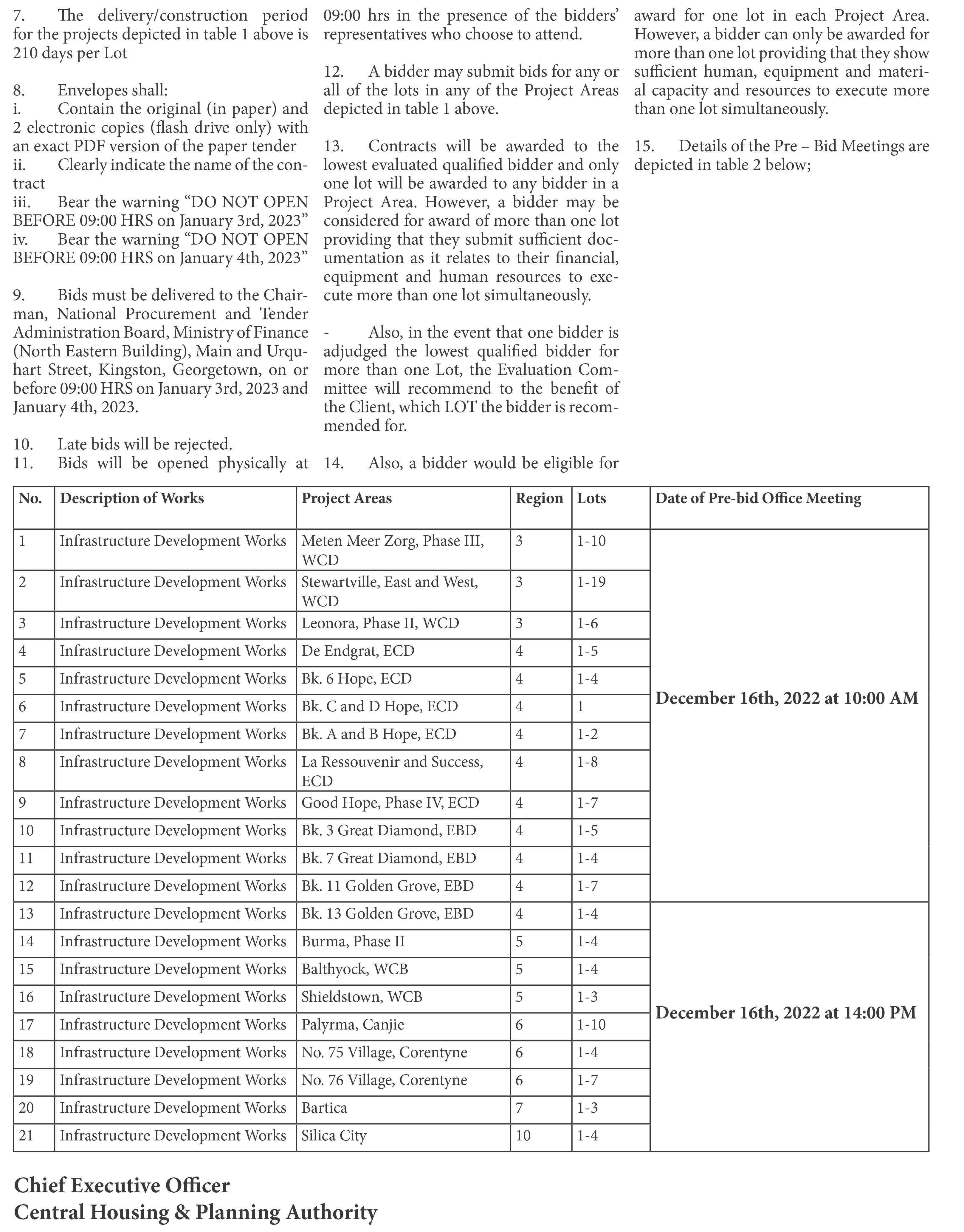
XXXVII CHRONICLE PEPPERPOT ― Sunday, December 11, 2022
STUDY SUCCESS
Dear Student, Welcome dear friend. Practice makes perfect as the saying goes. Practice writing good friendly personal letters. This skill reaches beyond your examination. An expertly written letter can substitute for a person-
to-person dialogue. Make it liveliness set down on paper. Choose your words well. What? You don’t know what to tell her? Simple. Topics are limitless. Offer your opinion about some current event; cheer her up; extend an informal invitation; inquire about her progress
toward her examinations. Be wise.
Love you.
THE PASSAGE
Read the simply but effectively written story. Read it carefully for there are characteristic about it that you may
need to emulate. Answer the items below it on the basis of what is stated or implied.
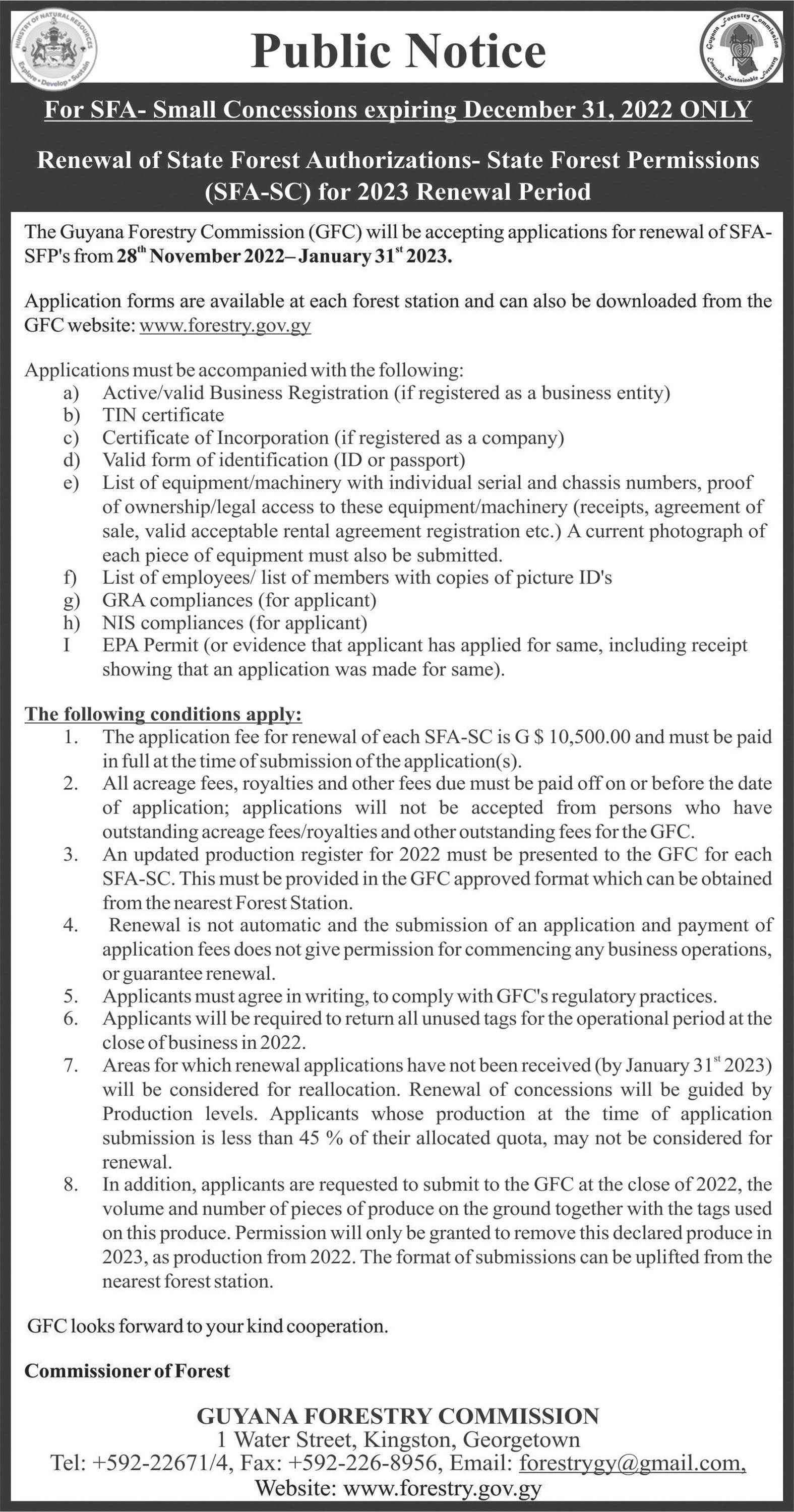
Safeeya sat on the edge of the chair. She held on to its sides for her life. Next to her sat her mother who was forced to miss a day’s work and pay because the school principal had sent for her.
Mrs. Kalloo and Safeeya arrived half an hour before the appointed time, but were told by the secretary to wait as the principal had not yet arrived and did not expect to see Mrs. Kalloo before 9 o’clock. Mrs. Kalloo was so disappointed.
The time seemed to pass slowly. Sometimes Mrs. Kalloo sucked her teeth and made snide remarks about ‘harden children’. As the time passed, Safeeya became more frightened. She had no idea why the principal had given her a letter, the day before, for her mother. Recently she had kept out of trouble. She had not been late for the classes, had completed all her homework, and had refused to join the other students who left the school at lunch time without the principal’s permission. She had tried her best to be in her teacher’s good books.
“You may see the principal now,” said the secretary. Mrs. Kalloo got up quickly, grabbed Safeeya’s arm, and marched her into the principal’s office. “What has she done now?” shouted Mrs. Kalloo angrily. “Nothing,” replied the principal calmly, “Safeeya has been selected to tour St. Vincent with our netball team. If you agree, you could please sign these papers, Mrs. Kalloo?”
1. Which of the following best describes Mrs. Kalloo while she was awaiting the principal?
(A) angry (B) impatient (C) disgusted (D) sad
2. Safeeya had tried to be in her “teacher’s good books.” She had tried to (A) read her teacher’s good books.
(B) helped to distribute the teacher’s good books.
(C) find favour from or to have her teacher on her side.
(D) have her name in her teacher’s class register.
3. What do you think Mrs. Kalloo’s reason for arriving half an hour before the time of her arrival?
4. Which of the following is a suitable title for the story?
(A) A Nervous Student (C) Waiting to See the Principal
(B) Waiting for a Verdict (D) The St. Vincent Trip
5. What effect did the principal’s note have on Mrs. Kalloo?
THOUGHT FOR TODAY
JOHN KEATS (1795-1821)
(A) It put her in some expense.
(B) It caused her to treat Safeeya unkindly.
(C) It brought out her distrust in her daughter.
(D) It made her think of leaving her job to look after Safeeya.
6. Write a story about a student who rocketed her way successfully to the career of her choice much to the disbelief of her school mates.
GRAMMAR
A.. Treatment of Closely Related Sentences

Sometimes we find it necessary to show that two sentences are more closely related to each other than to the other sentences in the paragraph. This closeness in relationship can be achieved in a number of ways. Today we will look at three ways.
Examples
1. The downpour was very heavy. The garden hat show continued as scheduled.
i) The downpour came very heavily, but the garden hat show continued as scheduled. (Use of the coordinating conjunction, but)
ii) Although the downpour came very heavily, the garden hat show continued as scheduled. (The first sentence is reduced to a subordinate clause by the use of ‘although’. Note the comma between clauses, and that the clauses can be removed.)
iii) In spite of the very heavy downpour, the garden hat show continued as scheduled. (The first sentence is reduced to an introductory phrase.)
What to Do Show ways that the three pairs of sentences below can be used.
1. The horticulturists worked hard at their preparation of the grounds. The overseer was not present.
2. Some of the contestants were not on time. The audi-
ence was treated to an interlude of cultural music.
3. The stiff-necked older villagers continued to build tiny shelters on the embankment. The law banned any unauthorized erections of homes on state land.
Bi).. Agreement of Subject and Verb
You may need these reminders; study them carefully: 1. A long string of new pearls was found on the dam. 2. Michelle, as well as her mother, is here. 3. More of this law needs explaining. 4. More of my close friends have left the community work group. 5. All of the tea is yours. All of these cookies are mine. 6. Most of Thursday has been cloudy. 7. Most of these weekdays have been cloudy. 8. Part of this advertisement is rained off.
Bii).. Here are two occasions when there can be errors in your attempt to make the verb agree with its subject.
1. You can be misled by a phrase that follows the subject. (Phrases beginning with such expressions as accompanied by, as well as, together with can be really troublesome.)
Such phrases do not affect the number of the subject. Once you have found the subject, you should pay no attention to such phrase following it.
Example: Baran, as well as his parents, is participating in the darts game. (Baran is singular subject; the singular verb is needed. If the singular verb sounds awkward to you, recast the sentence: Baran is participating, as are his mother and father. Note the placement of the two commas after words Baran and parents.)
2. You can get very uncertain if the subject is all, more, most, part, some; a fraction; or a percent and is followed by an “of” phrase, use a verb that agrees with the subject in that phrase. [To be continued in our next issue.]
XXXVIII CHRONICLE PEPPERPOT Sunday, December 11, 2022
“Beauty is truth, truth beauty,” – that is all Ye know on earth, and all ye need to know.
Ode on a Grecian Urn
December 11, 2022
Money for carbon credits - but what’s that?
GUYANA, in recent weeks, demonstrated its environmental prowess once again by becoming the first country that could earn money for saving its forests through a special scheme and then inking a deal to secure funds from a major Oil Company. This was possible because the country had special jurisdictional carbon credits issued to it- quite the impressive feat but seemingly complicated nonetheless.
With the acquisition of carbon credits so topical in Guyana, I thought it was important to dedicate this space to helping to deconstruct this new scheme.
First, as I tried to explain in articles I wrote for the News Room, a carbon credit is a kind of tradeable permit or certificate representing the removal of a certain amount of carbon dioxide from the environment. But to even understand the importance of this credit, one must also understand that carbon dioxide is a gas that harms the environment. Trees help to suck in carbon dioxide and, thus, limit the amount of harmful gas in the atmosphere. When trees are cut down, those gases are released and can cause environmental harm. Because Guyana has large intact forests- some 18.4 million hectares to be more precise- significant amounts of the harmful gas have been trapped. With these carbon credits, Guyana is essentially showing just how much carbon dioxide its trees are trapping, and the country is asking for payments from companies or countries to help protect those forests from being cut down and releasing the harmful gas. So, as it did before with Norway, Guyana is selling these credits to countries or companies for them to pay to keep the forests intact. Importantly, the carbon credit is also treated like a commodity (like sugar, for example) because it can be tracked and traded.
Then, the scheme Guyana has entered into must be understood. Guyana became the first country to get special carbon credits issued to it by the Architecture for REDD+ Transactions (ART)- which is a global initiative that seeks to incentivise governments to reduce emissions from deforestation and forest degradation (REDD), to both restore forests and protect intact for-
ests. A total of 33.47 million credits, known specifically as REDD+ Environmental Excellence Standard (TREES) credits- were issued to Guyana and would be available to buyers. The Hess Corporation, a company that profits significantly from the oil industry that is notorious for harmful gas emissions, was the first taker. It agreed to purchase 2.5 million carbon credits annually and pay Guyana at least US$750M for saving the rainforest. Essentially, Hess believes that Guyana should not cut down on these to continue saving the world and as such, the country must be compensated.
It can be argued that Guyana has been able to cash in on a good deal to sustainably benefit from its abundant forest resources. Even so, some questions linger because this is something new to the countryand the rest of the world.
I recall last week, during the sitting of the National Assembly, the Parliamentary Committee of Supply approved $360 million to pay the carbon credit verification fees to the Architecture for REDD+ Transactions (ART). Before that sum was approved, however, one Opposition Parliamentarian asked Minister of Natural Resources, Vickram Bharrat, a question that might have struck some as overly simplistic or obvious; he asked, “Who owns these carbon credits?” The Minister answered that Guyanese own the credits just as we do any other resource be it rice, sugar, bauxite, oil, or otherwise. To hear an elected political representative ask this question, for me, was important because it shows just how much awareness and education are needed before people can truly understand how the country stands to benefit from this new venture. Outside of the National Assembly, a friend said that her grandmother asked her to explain what carbon credits were simply because she saw it plastered across a newspaper but had no clue what that meant. And I will admit that my decision to write about carbon credits and this new venture in this space was informed by some of those two engagements.
Understanding these arrangements and concepts is easy for me because I am, lowkey, a nerd for climate change topics. And with carbon credits and Guyana’s efforts at pro-
tecting its forests contributing to the fight against climate change, it is obvious that I would immerse myself in the content.
Still, I think about the Parliamentarian, my friend’s grandmother, and my inquisitive grandfather, who never
fails to question me about current events. And I think that more robust education and awareness can be done.
If you would like to dis-

cuss this column or any of my previous writings, please feel free to contact me via email: vish14ragobeer@ gmail.com

XXXIX CHRONICLE PEPPERPOT ― Sunday, December 11, 2022

XL CHRONICLE PEPPERPOT Sunday, December 11, 2022










 By Dillon Goring
By Dillon Goring





 By Trina Williams
By Trina Williams








































































































